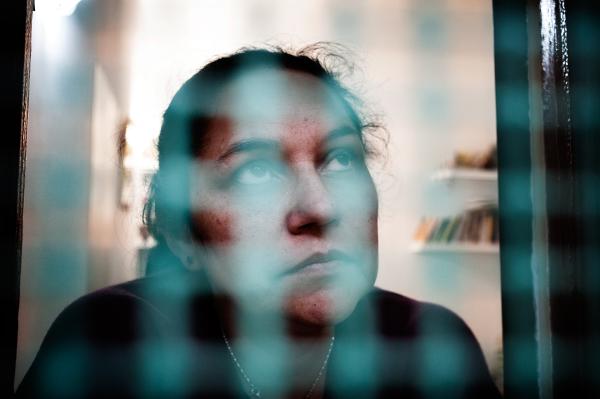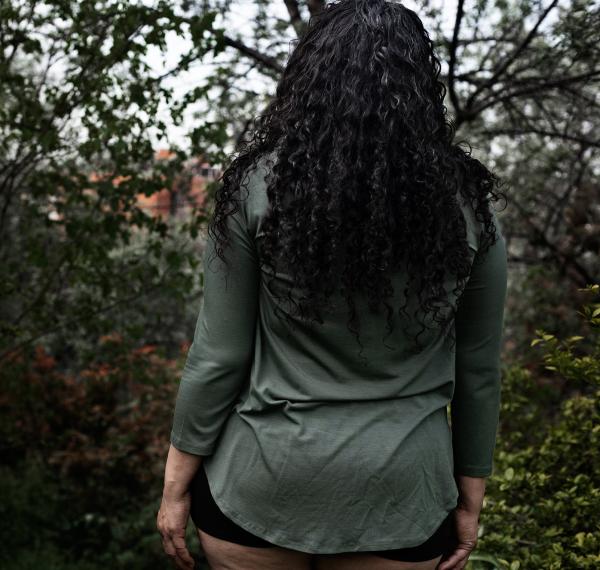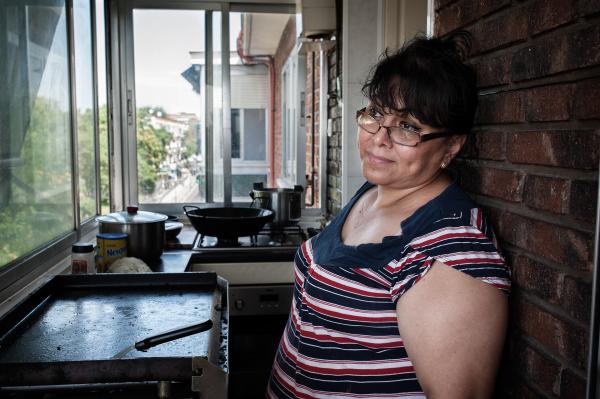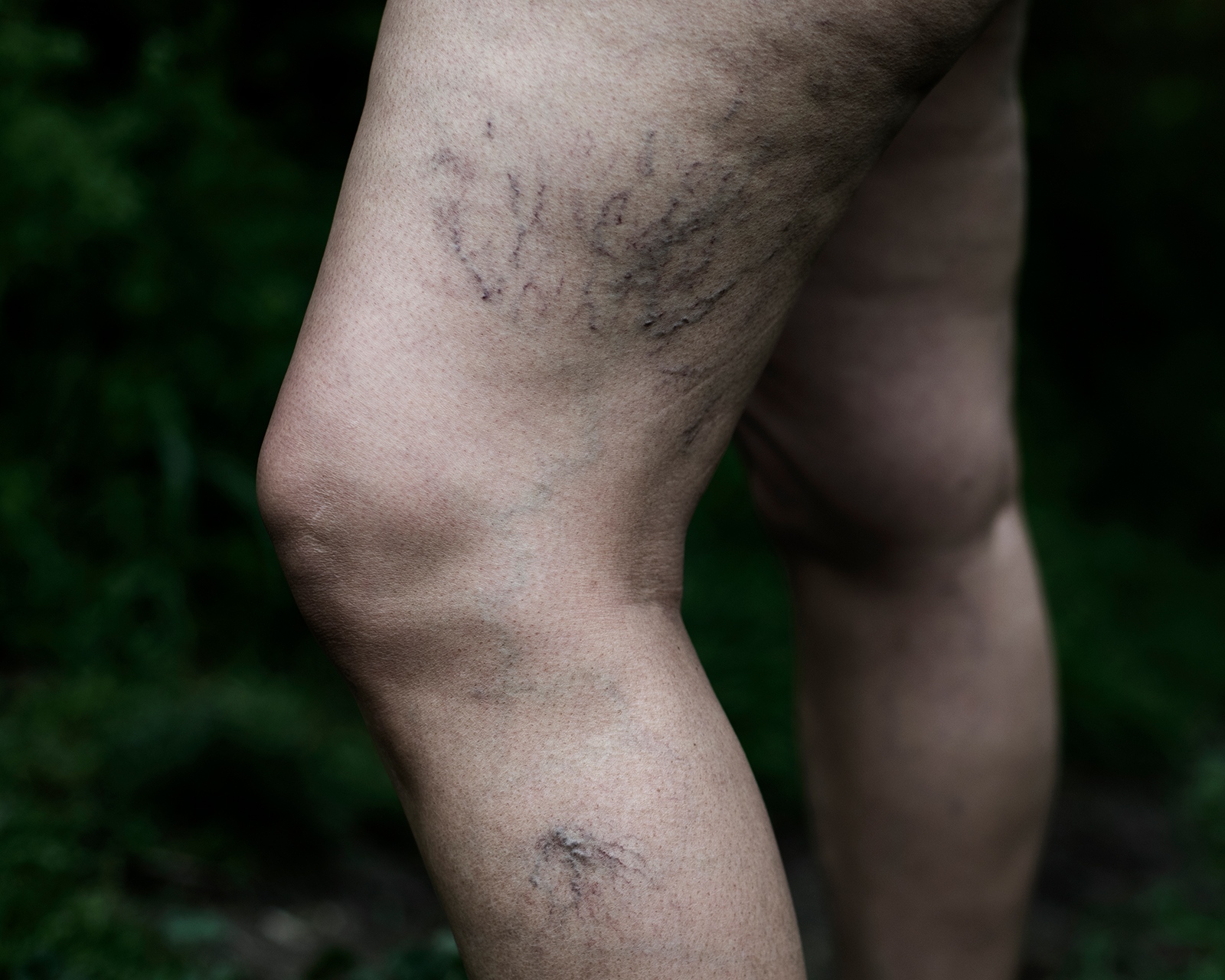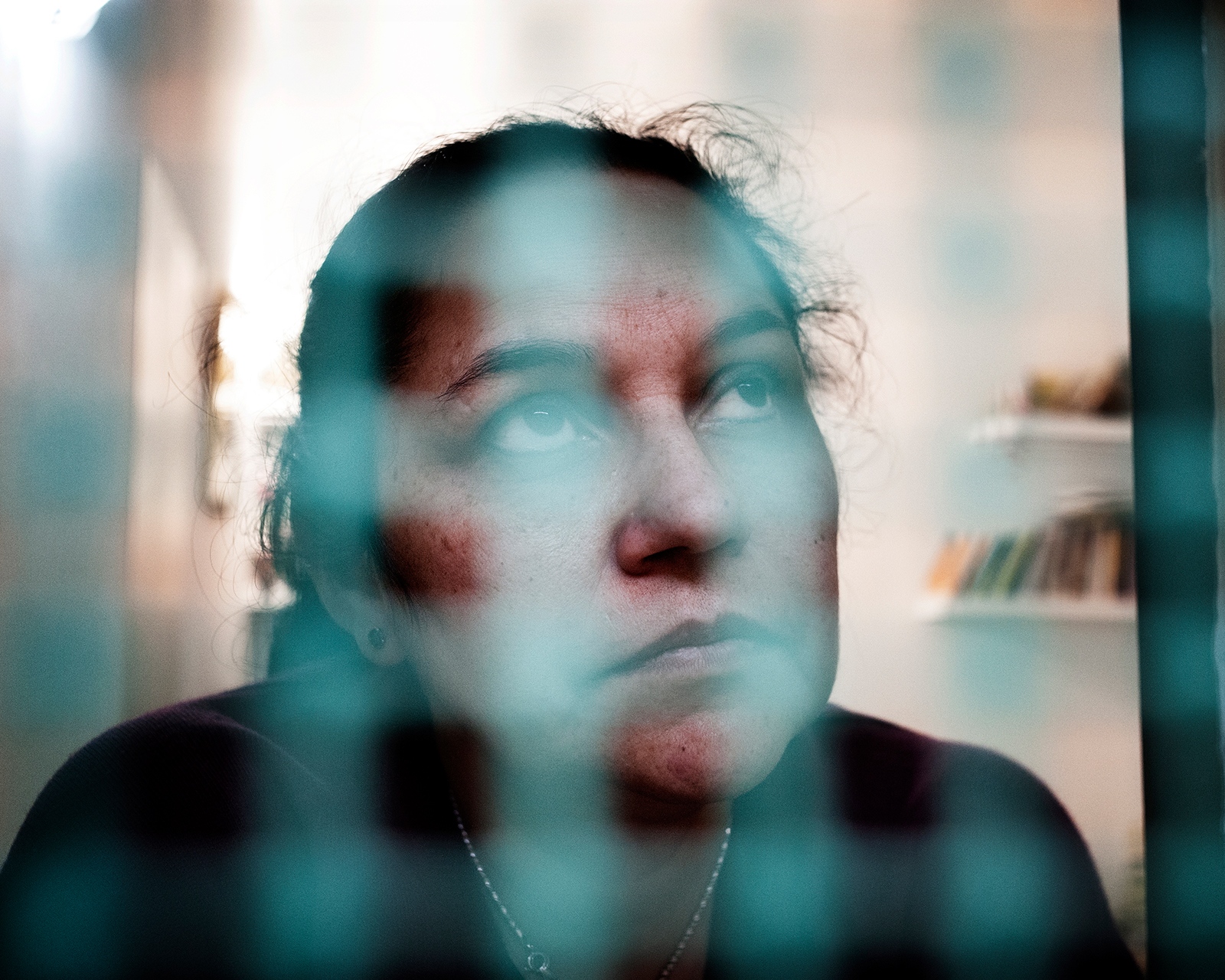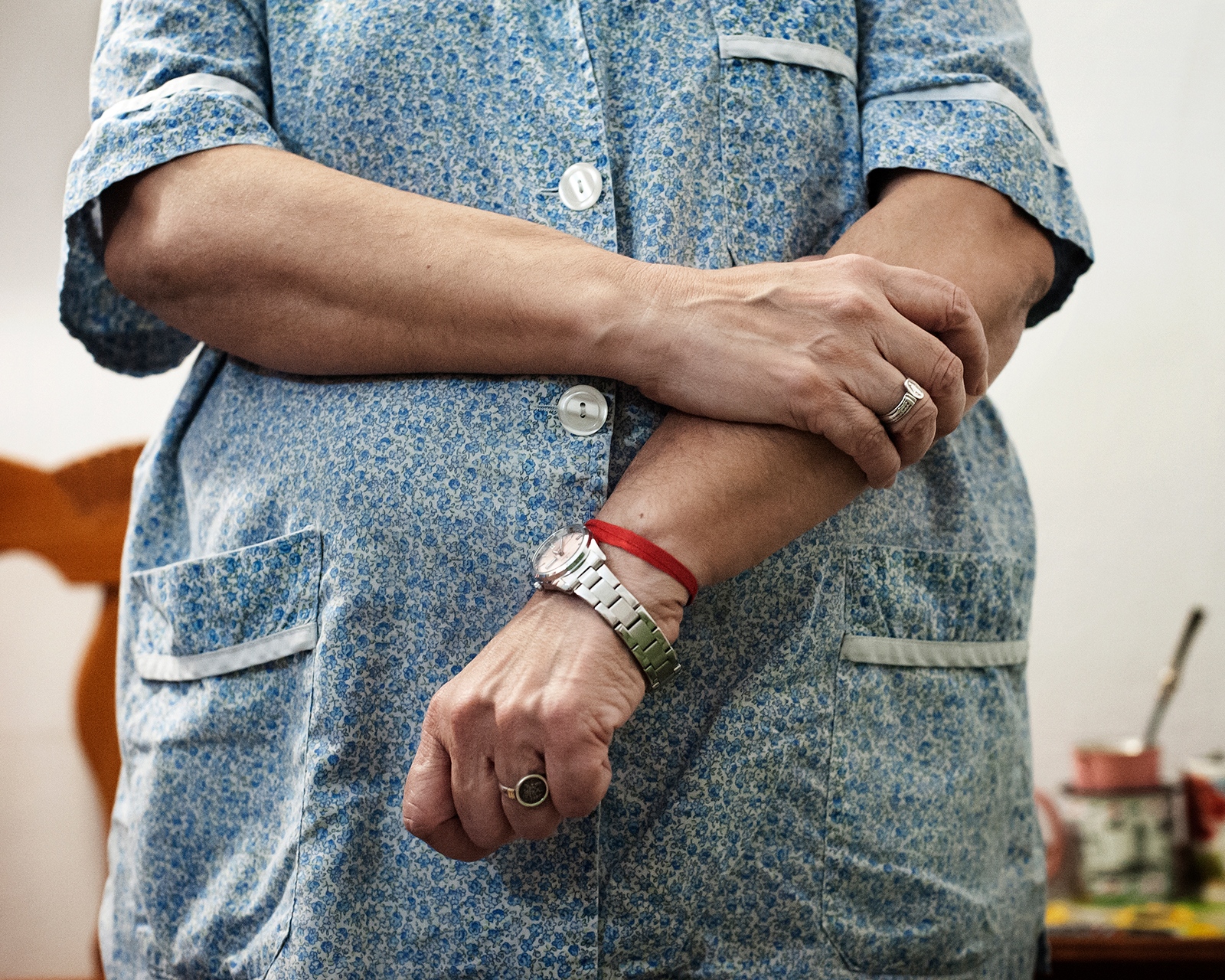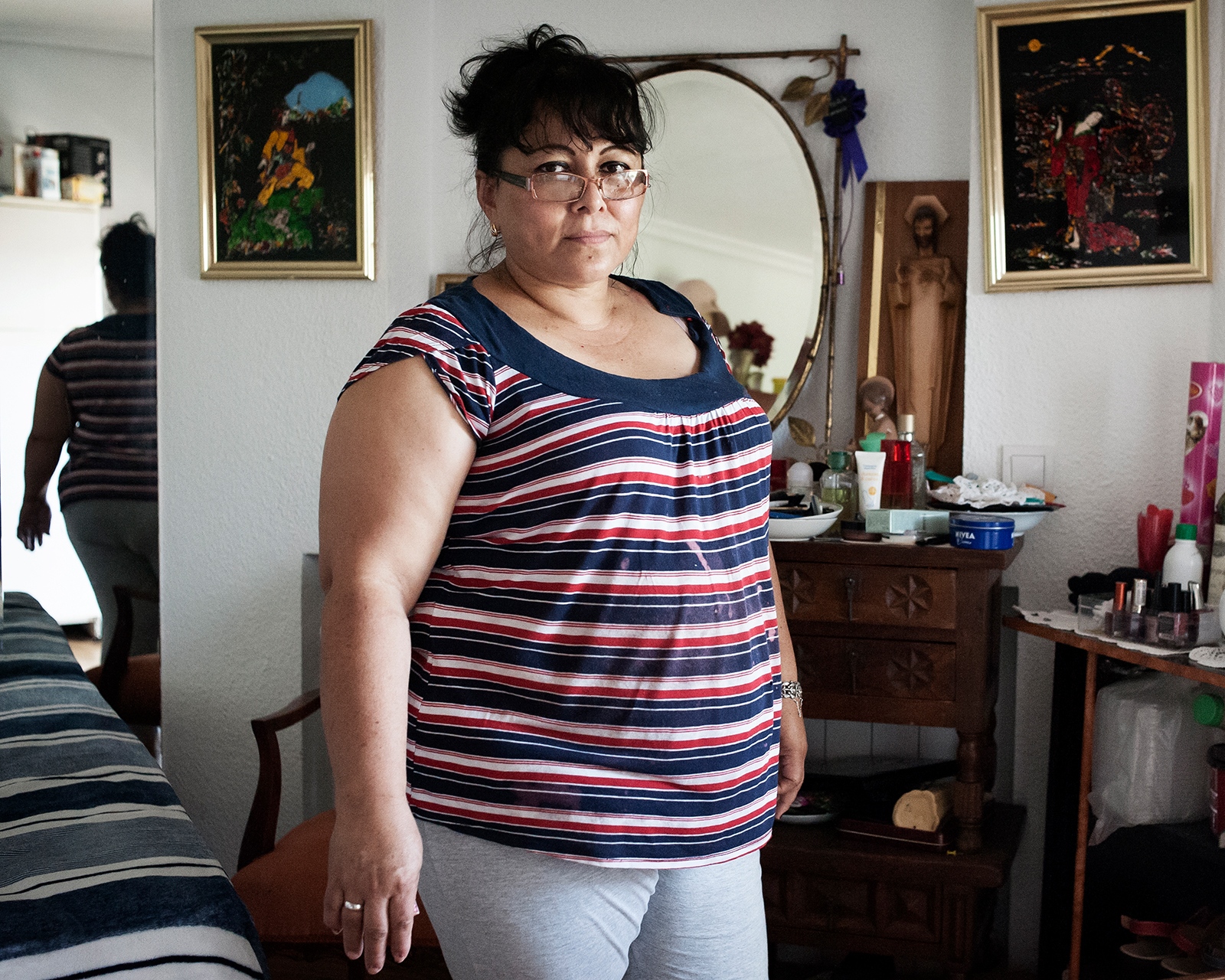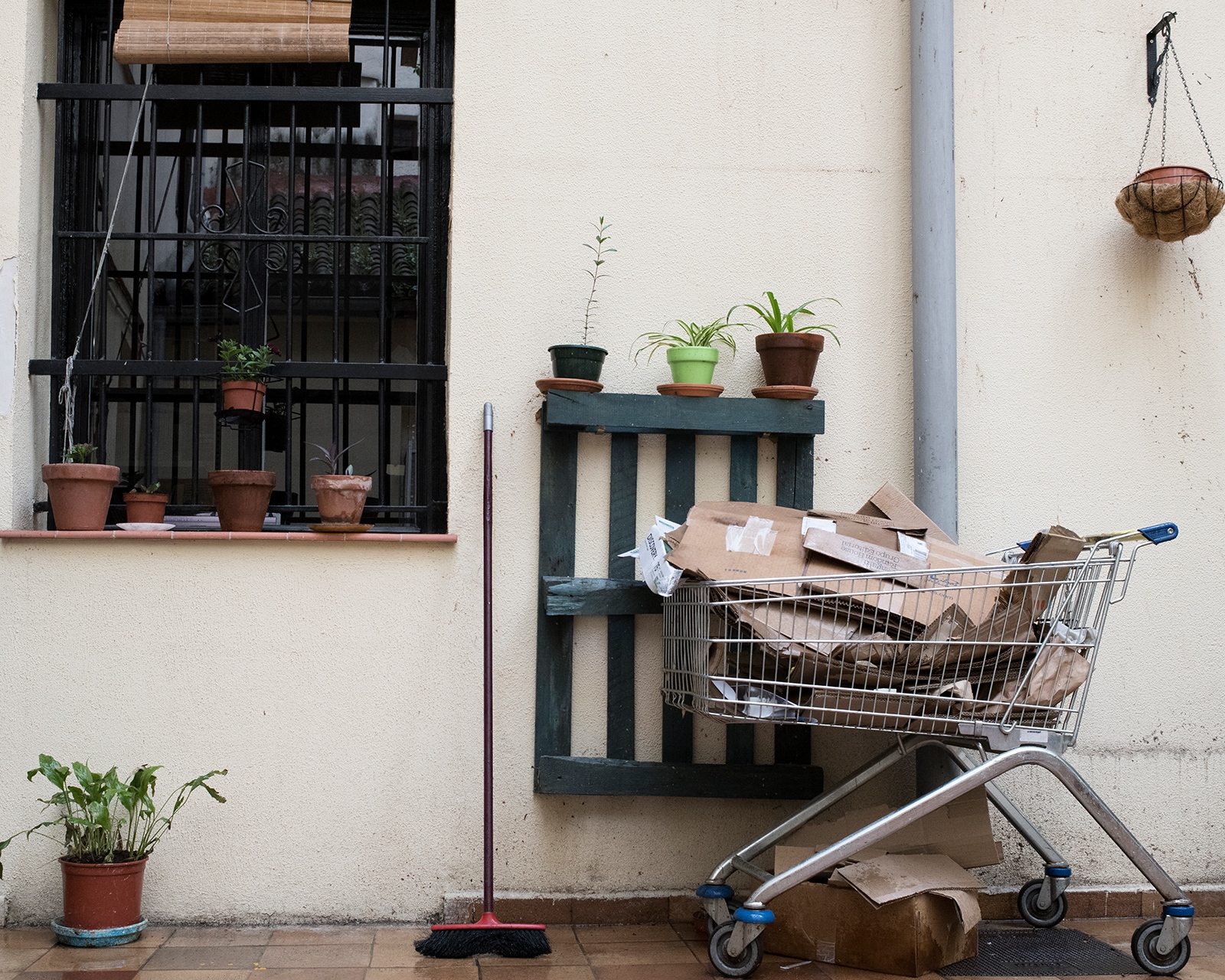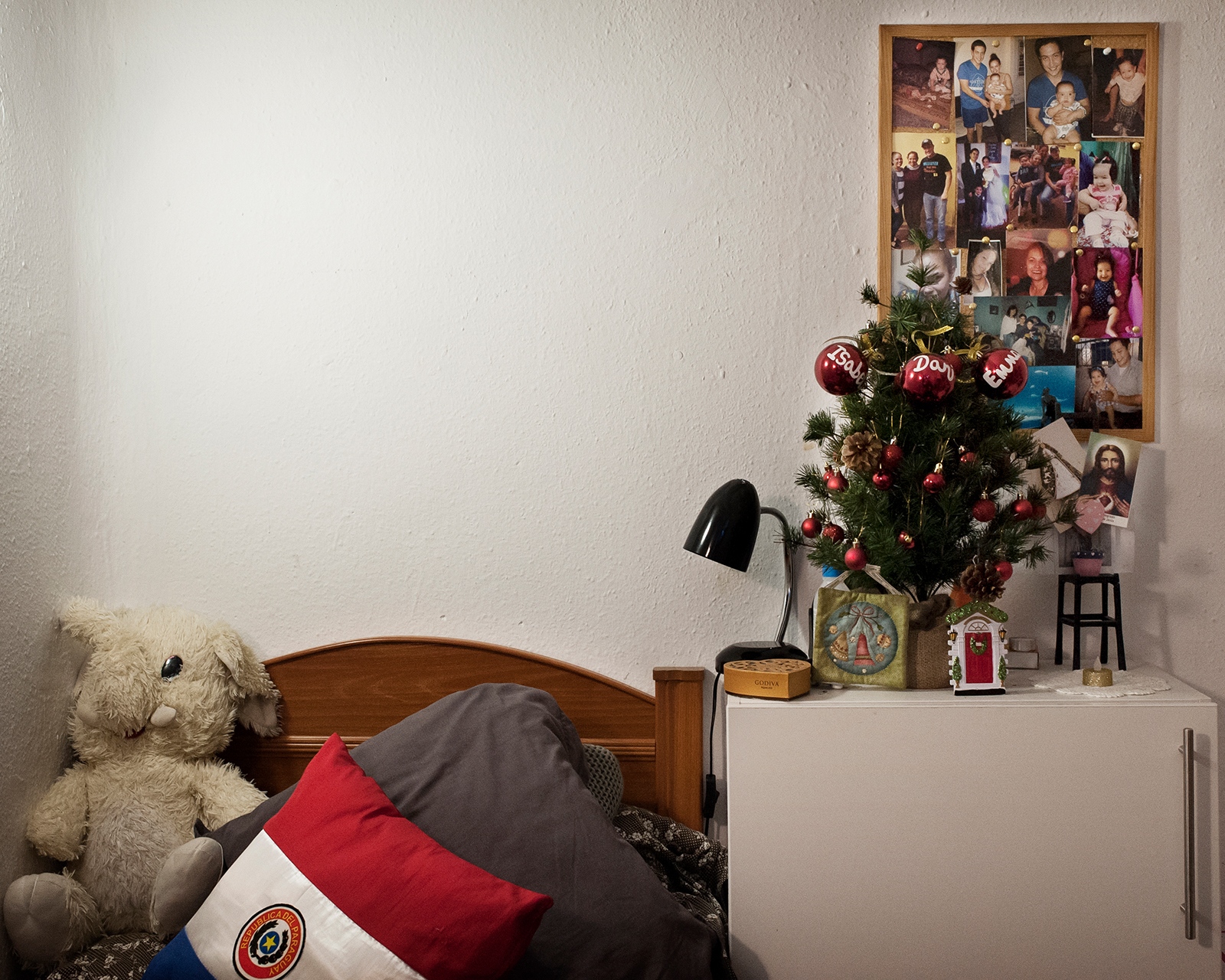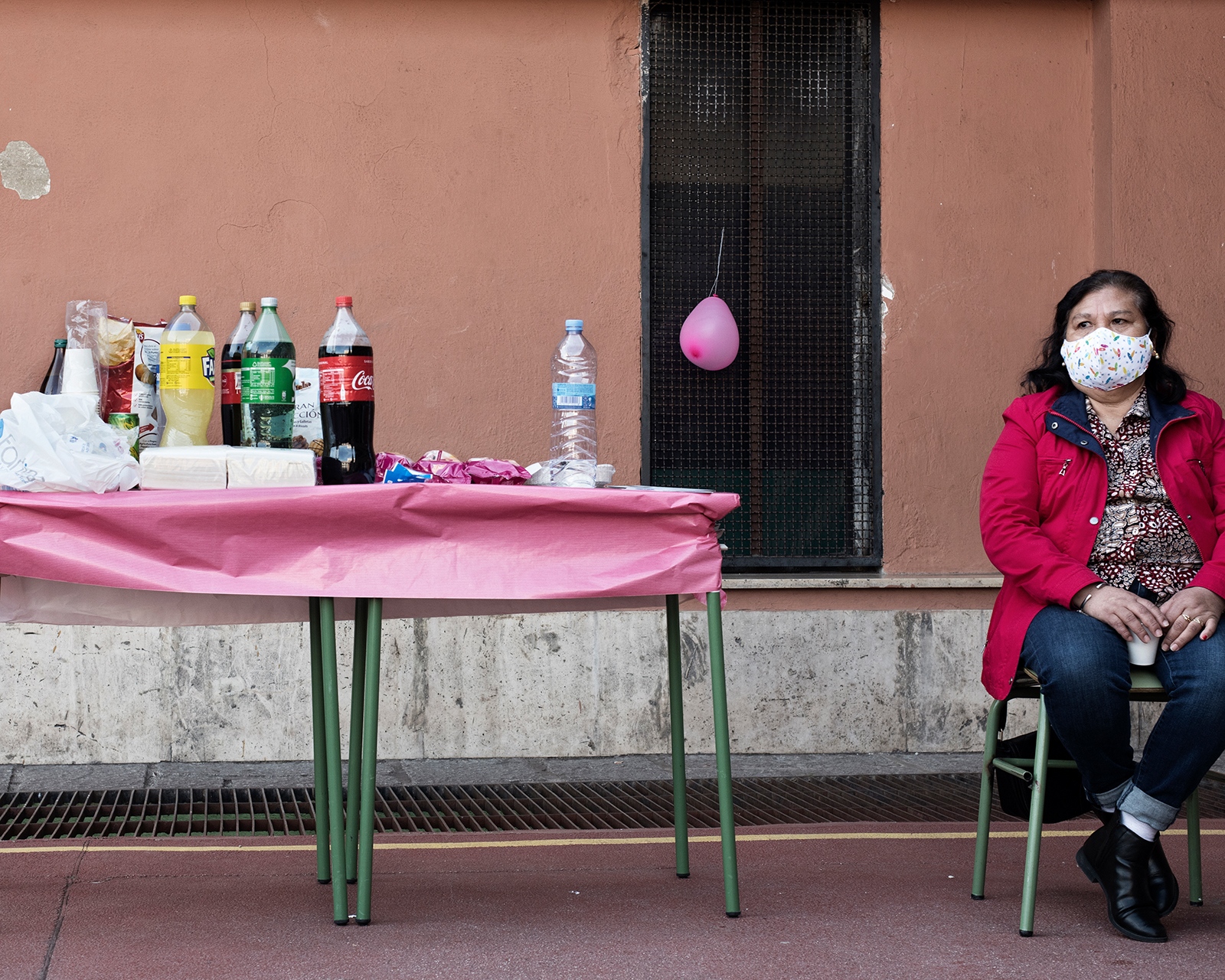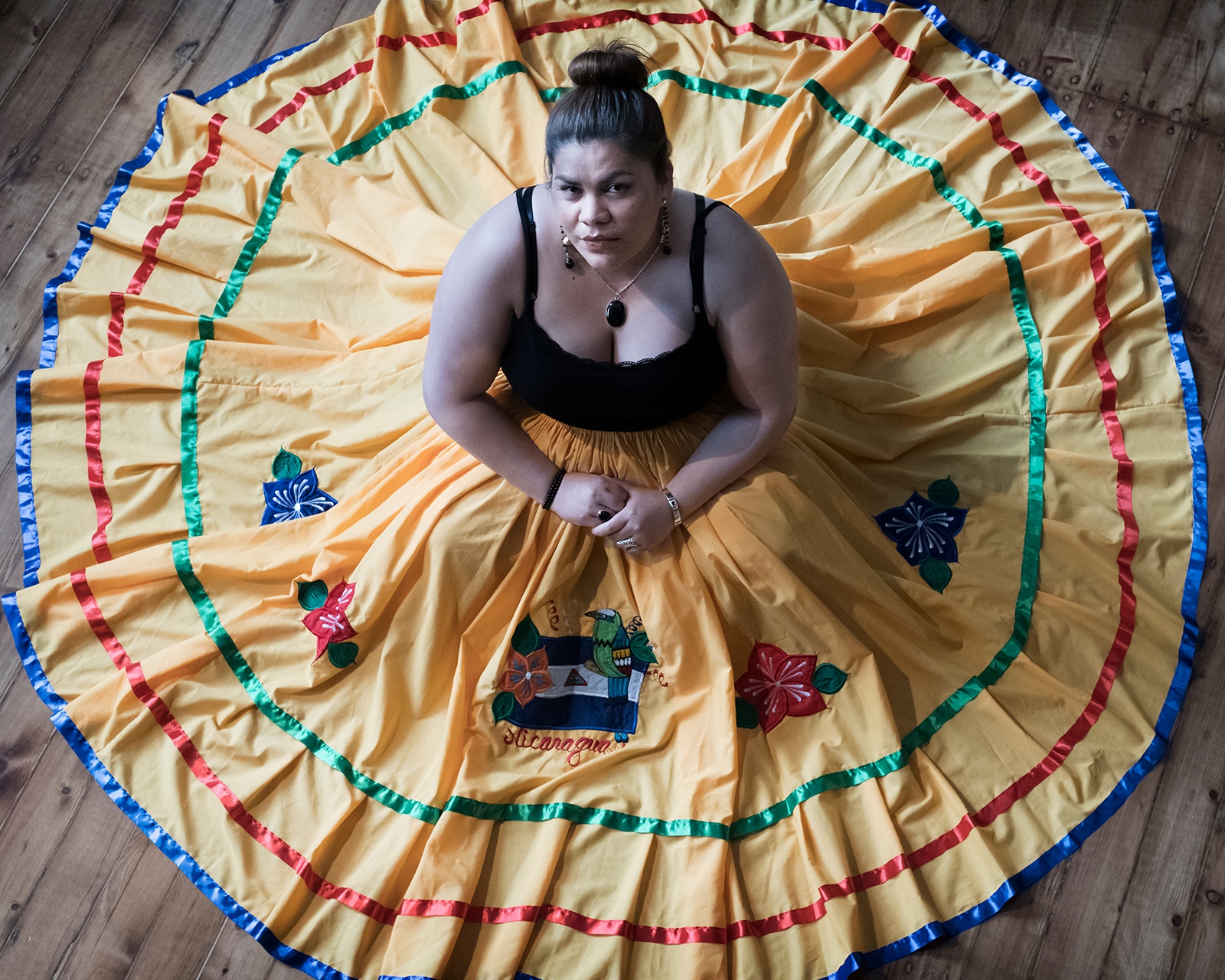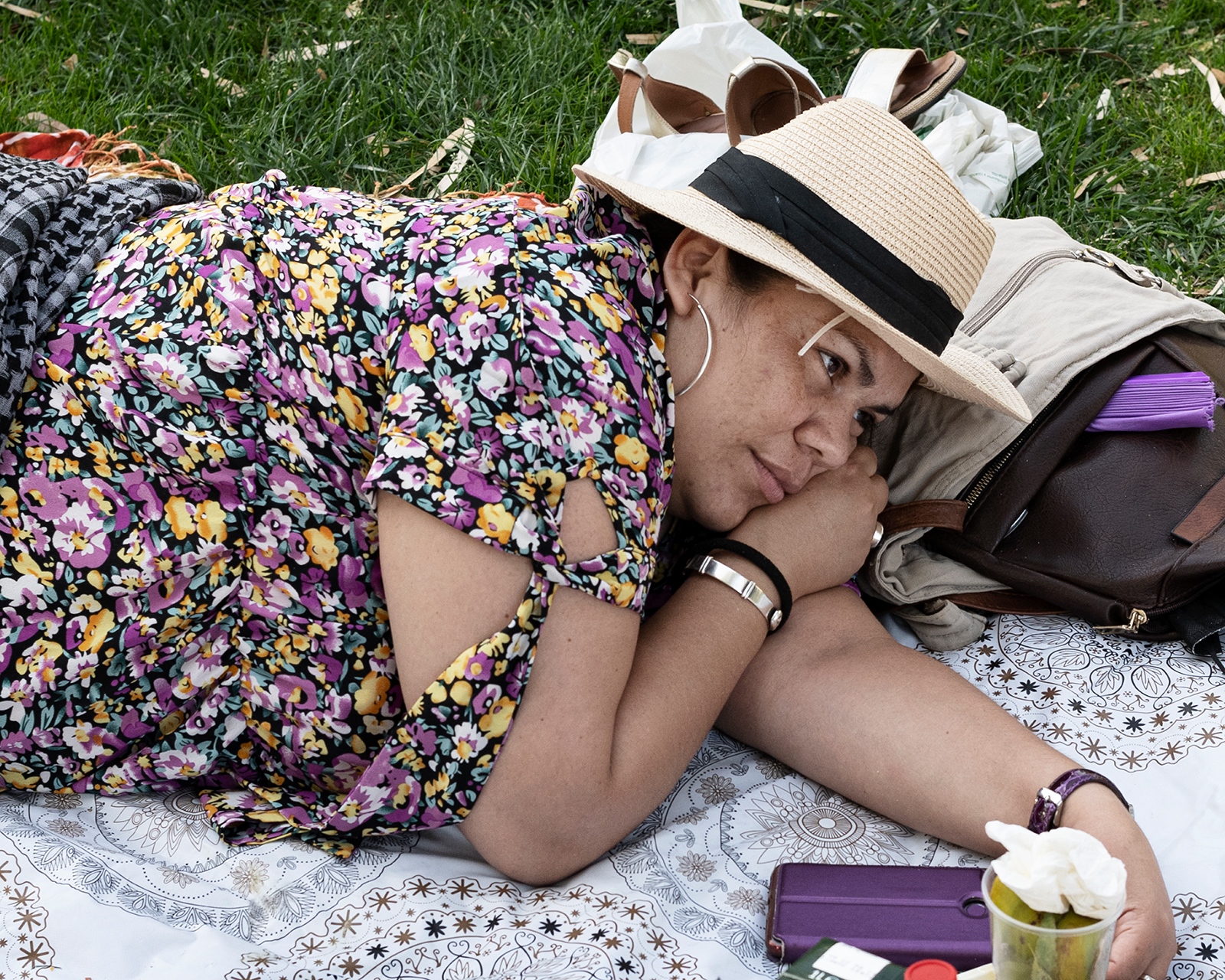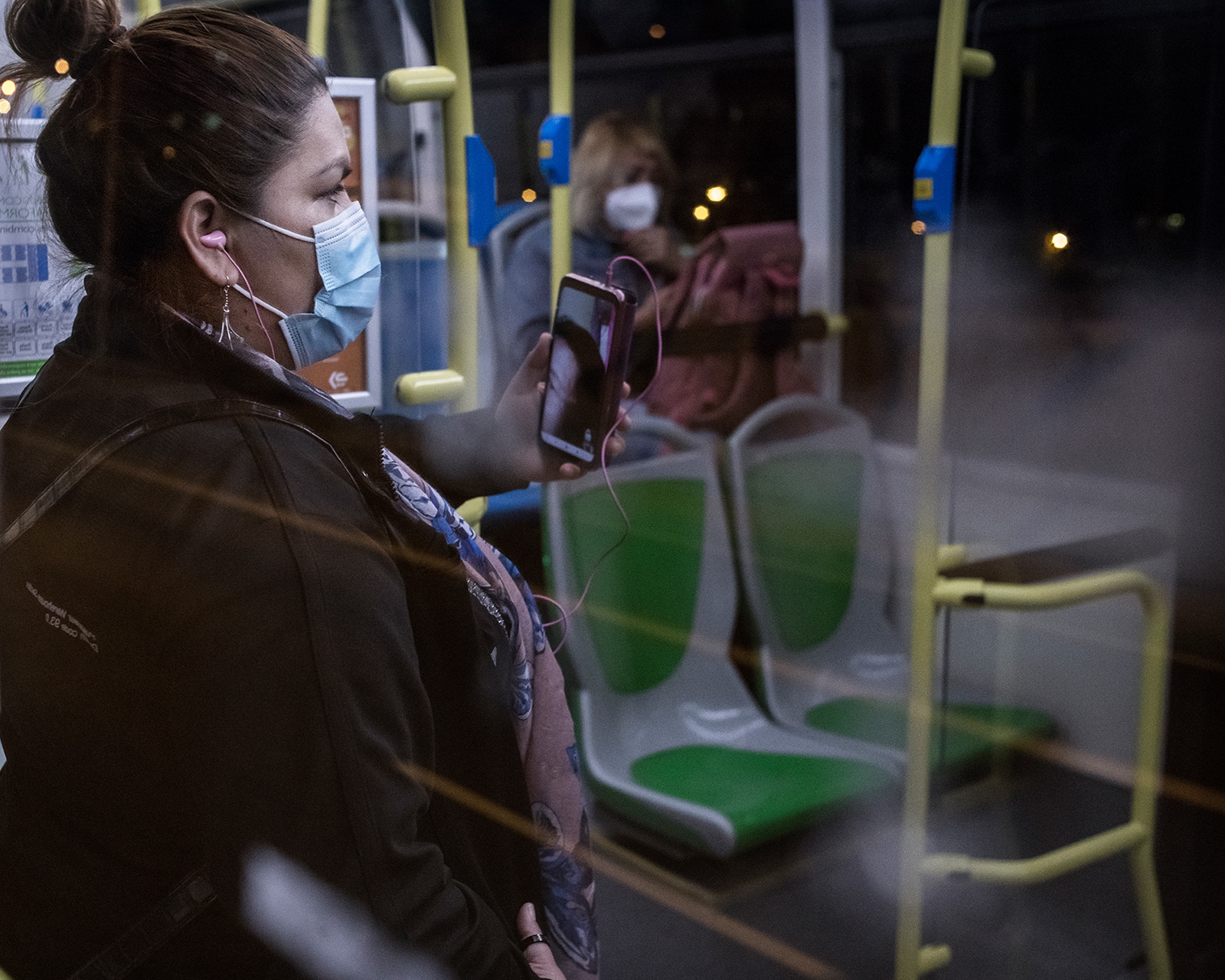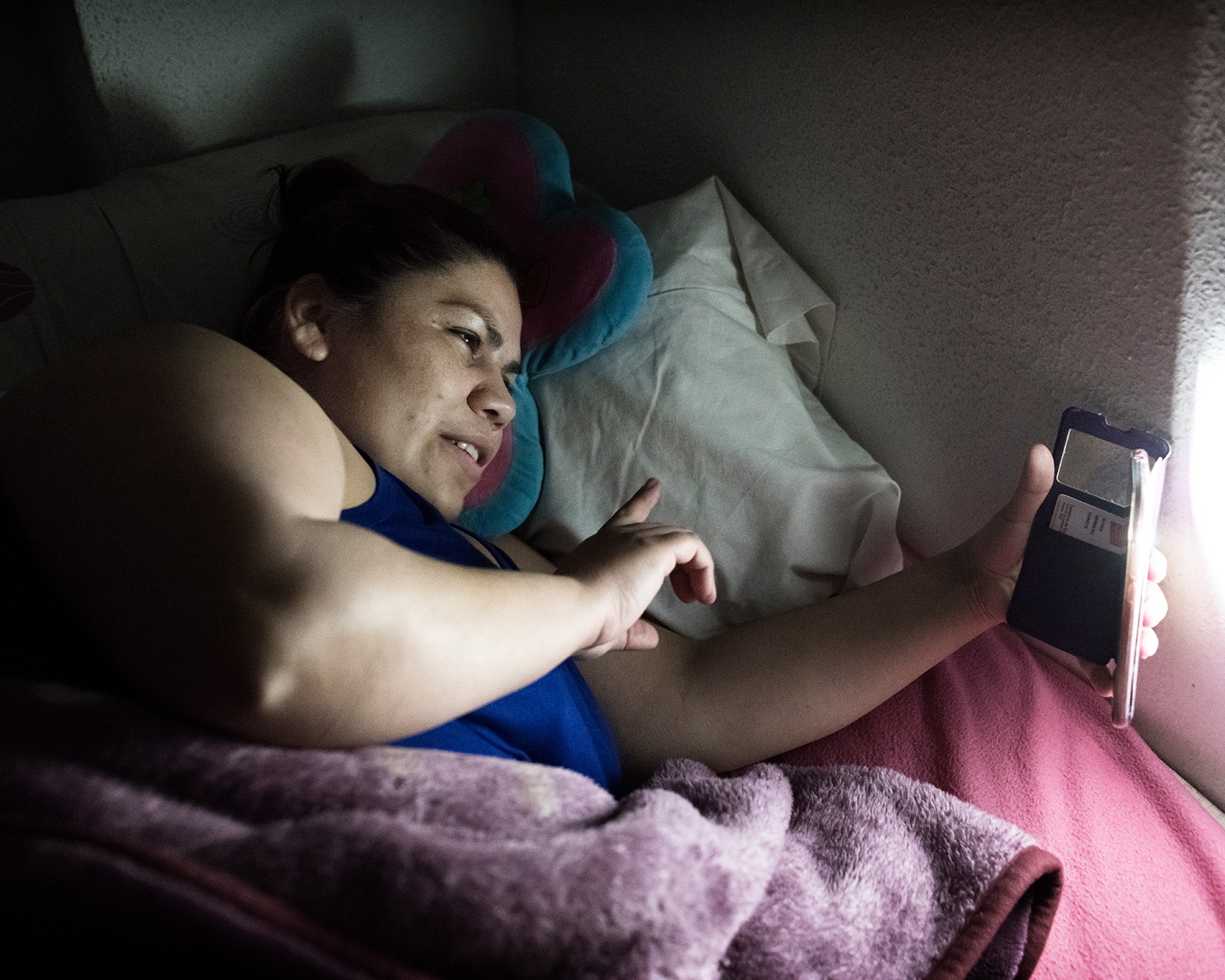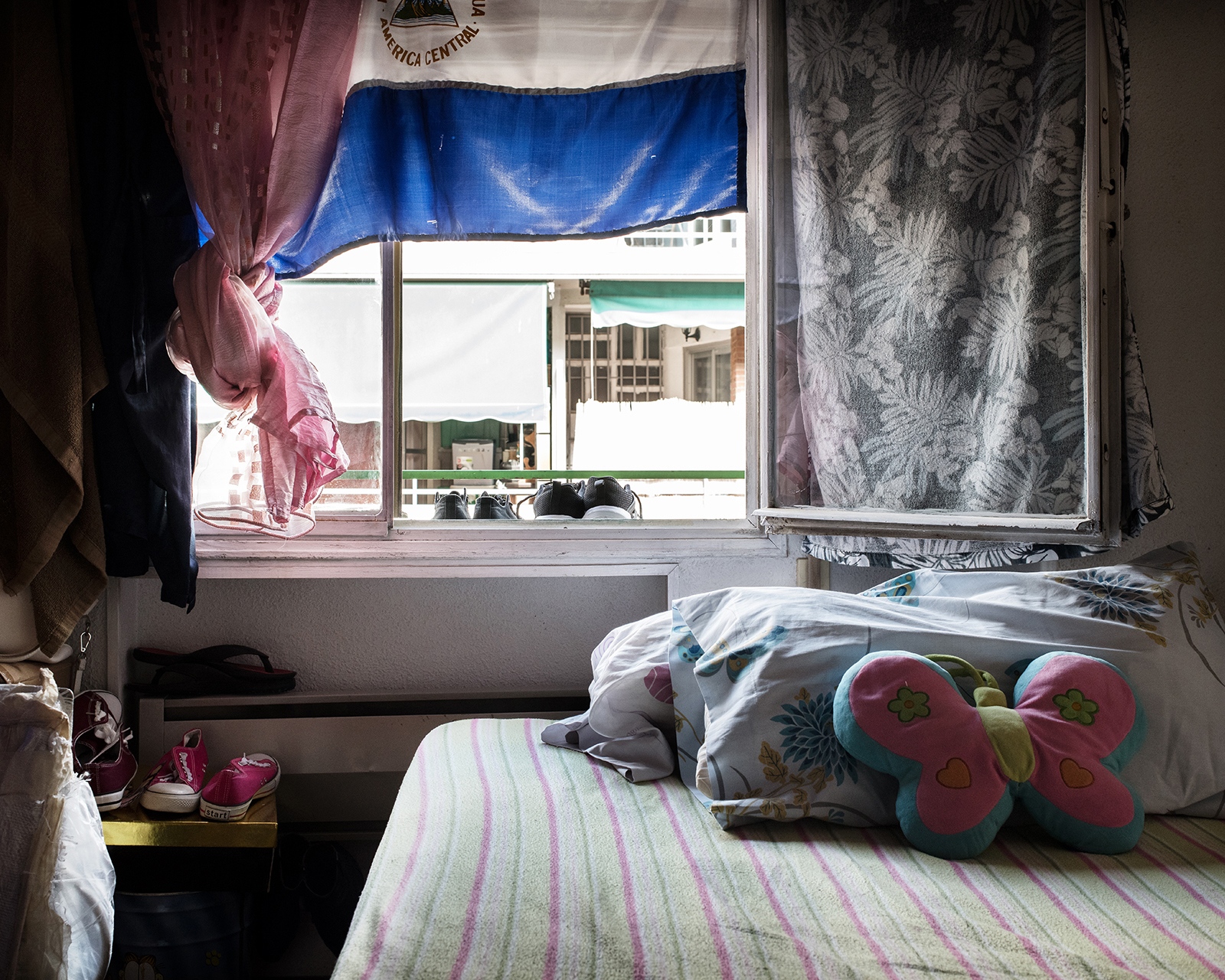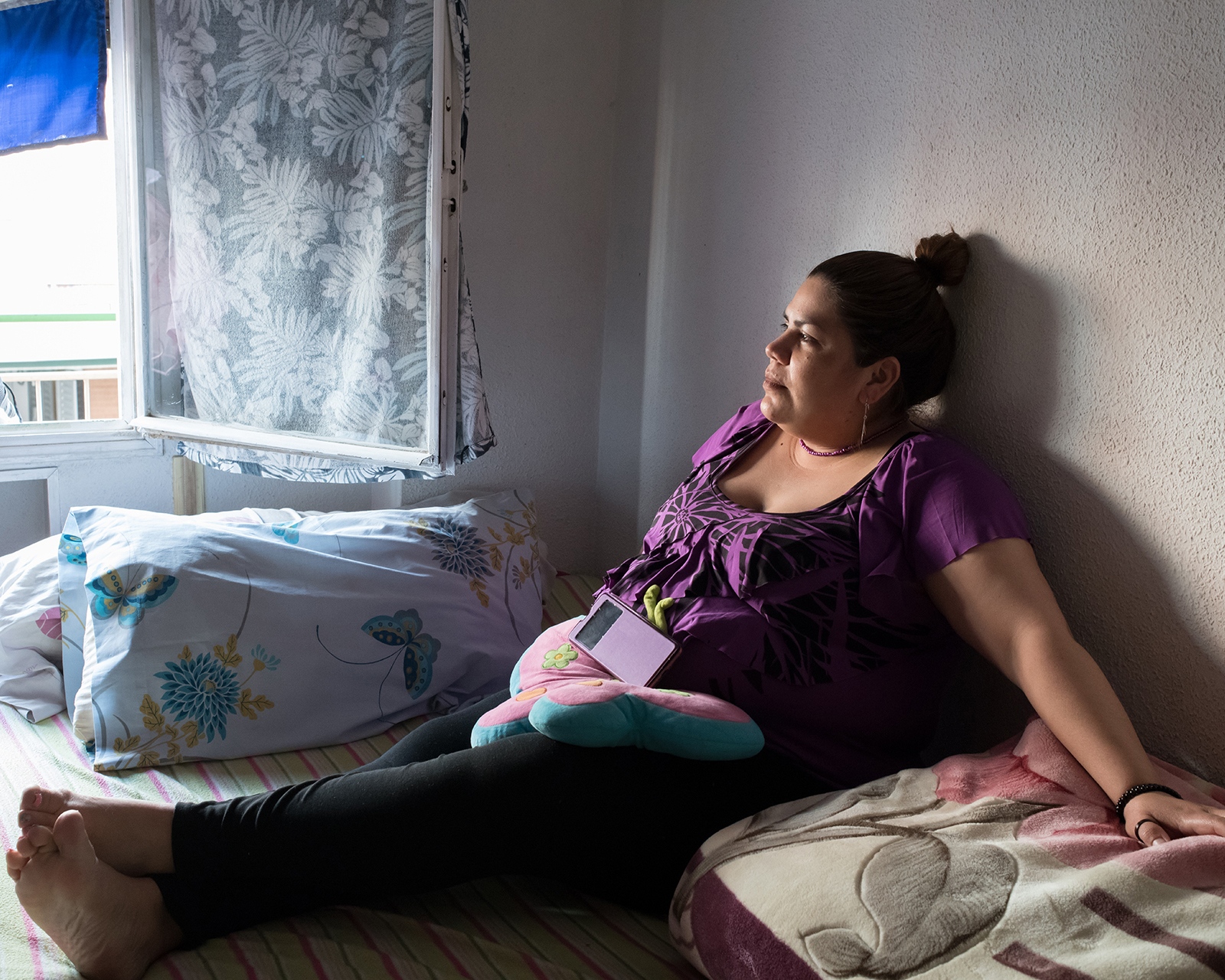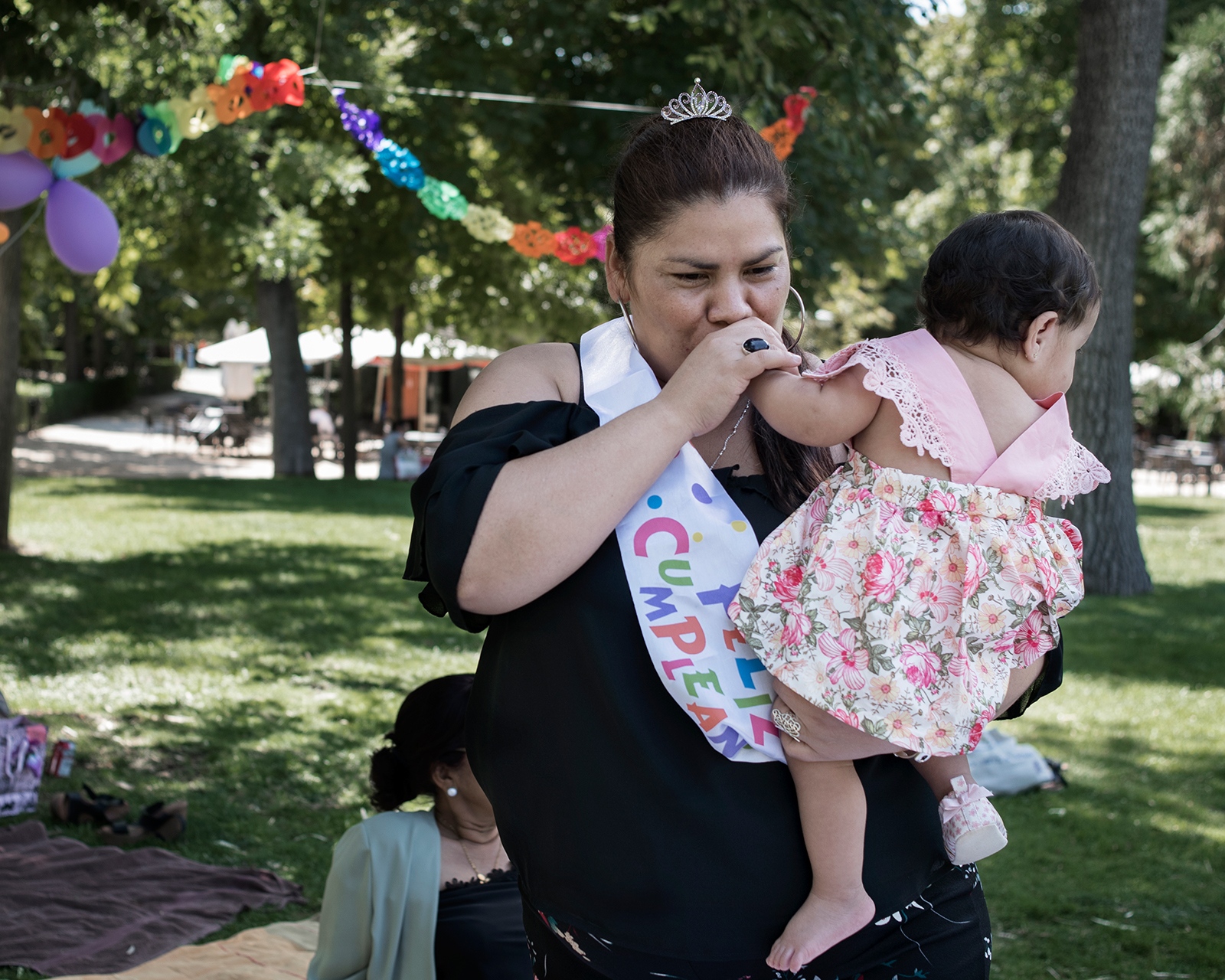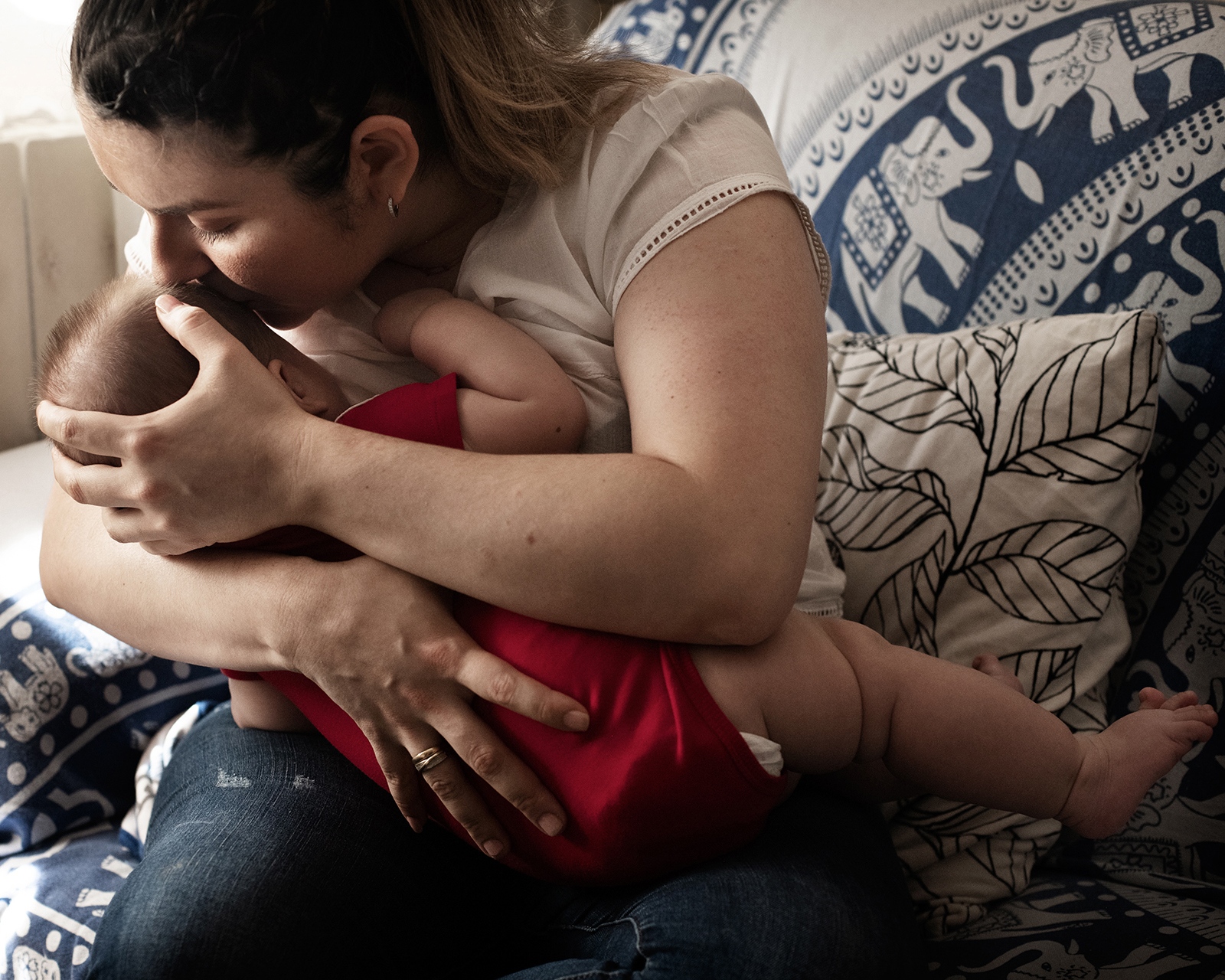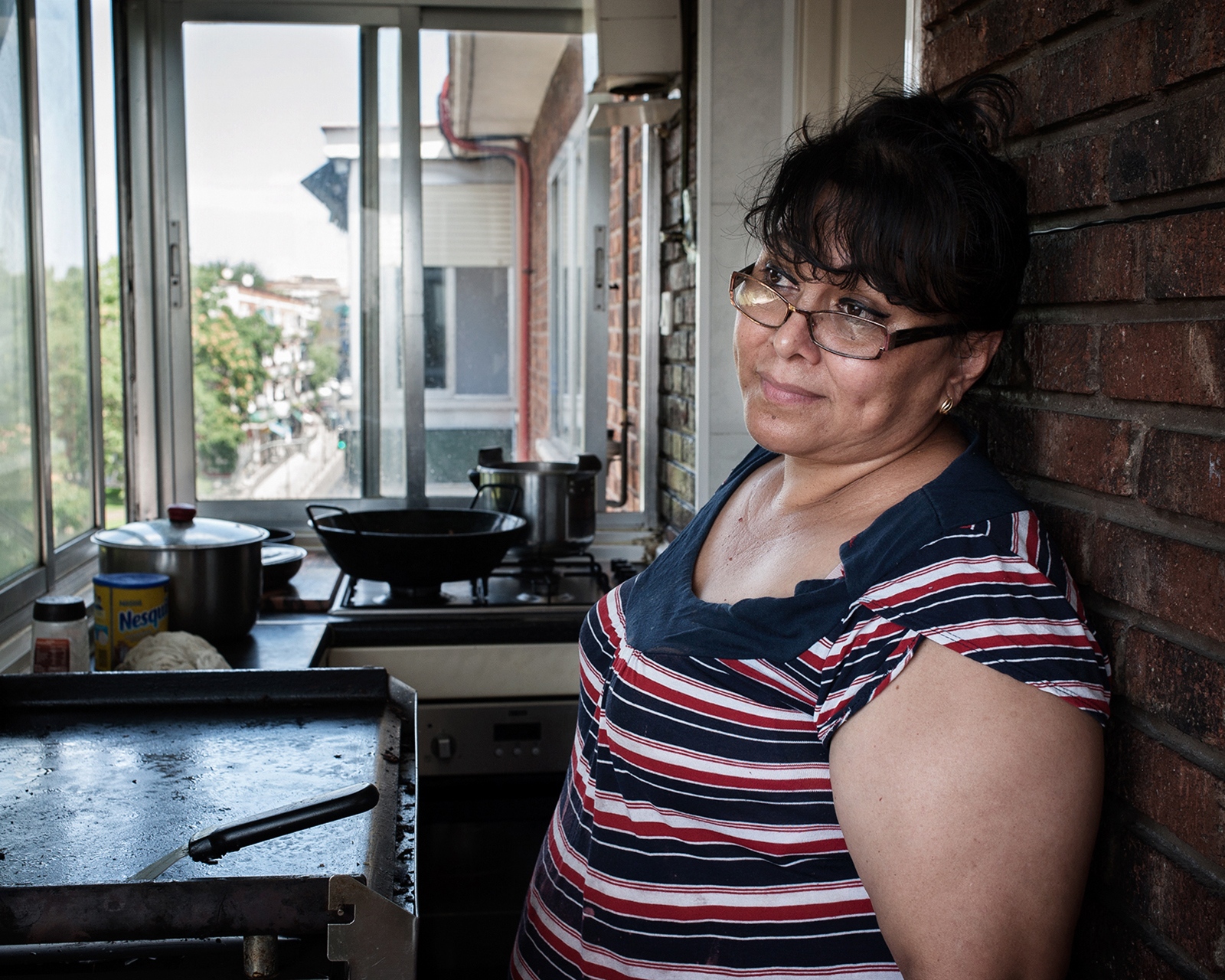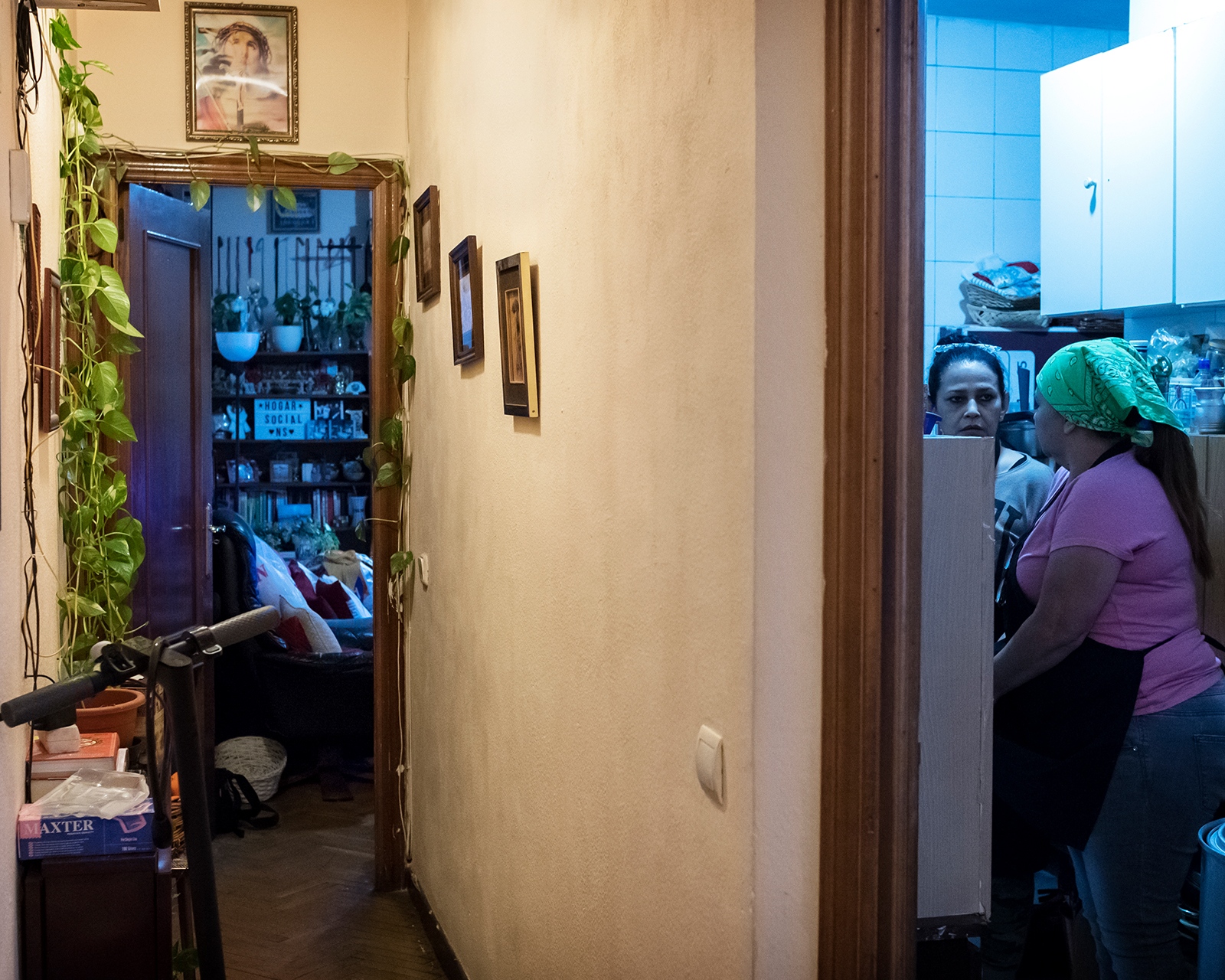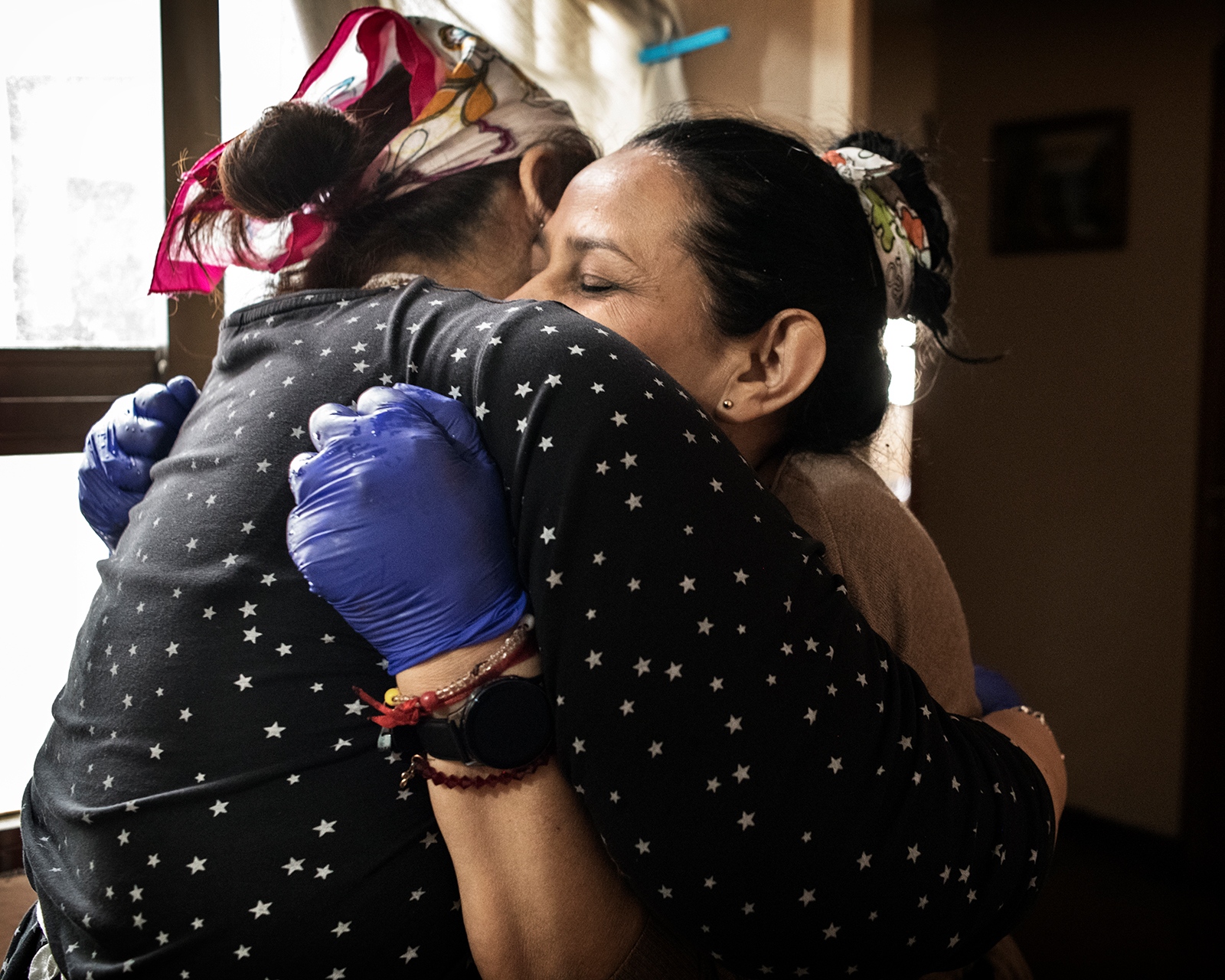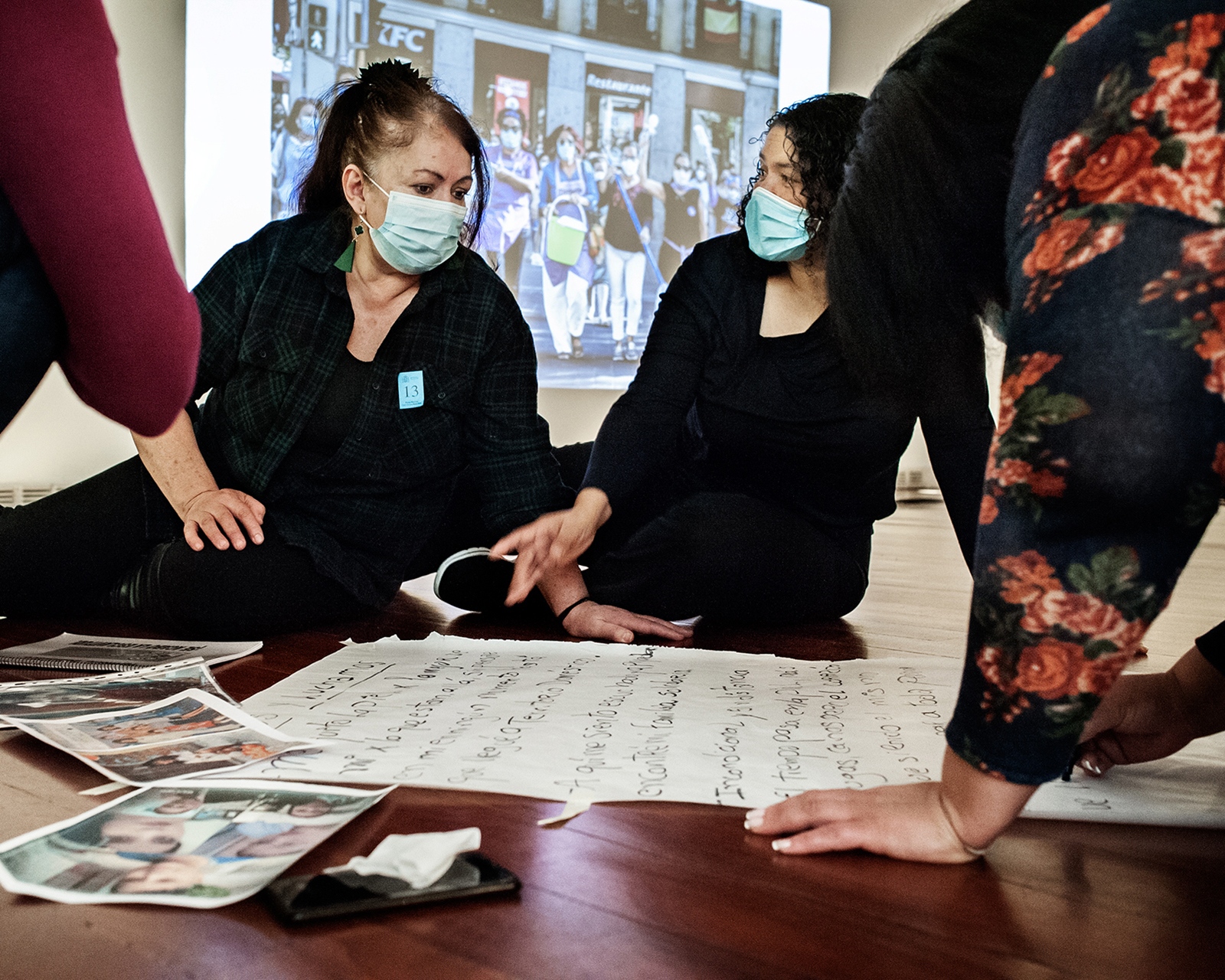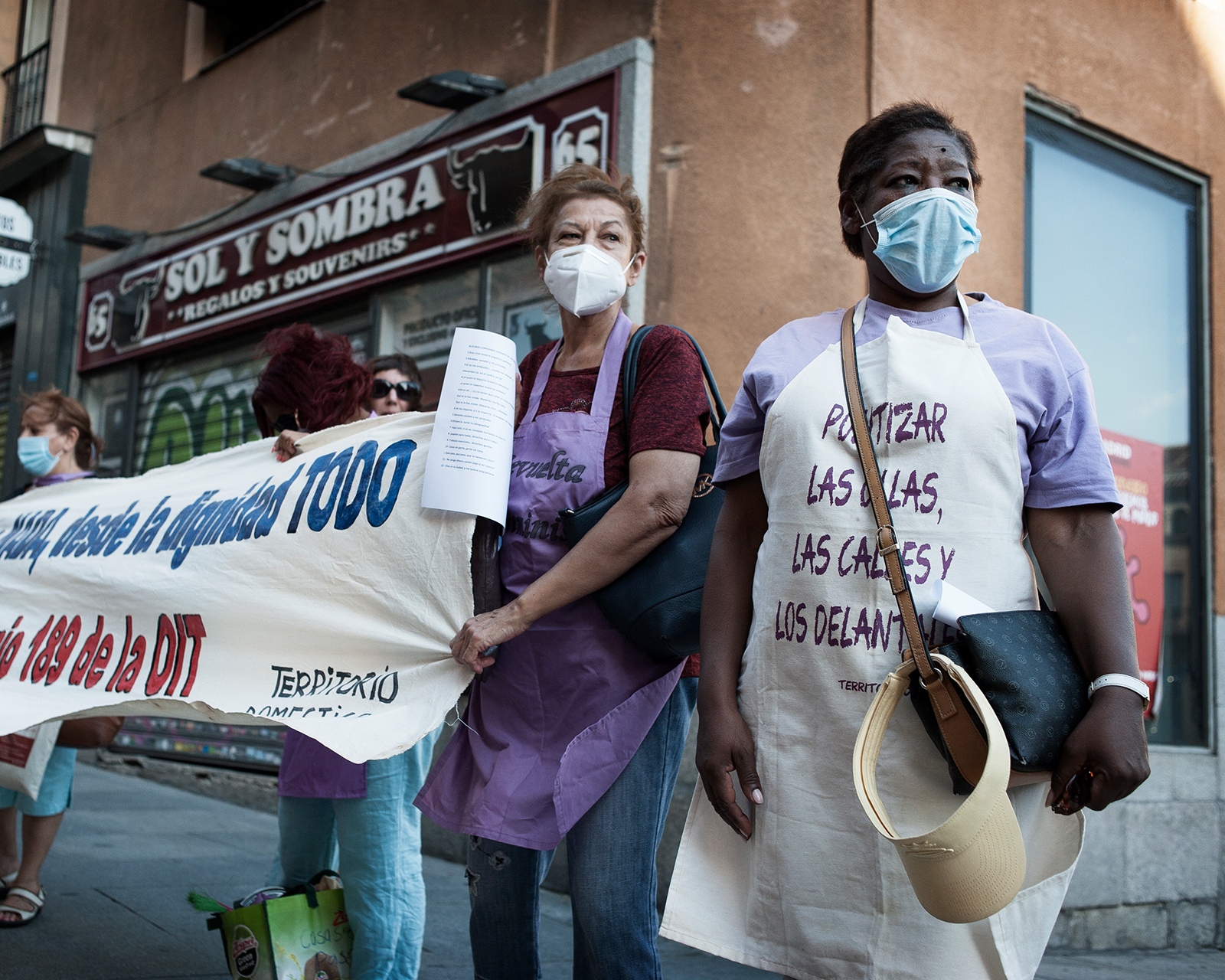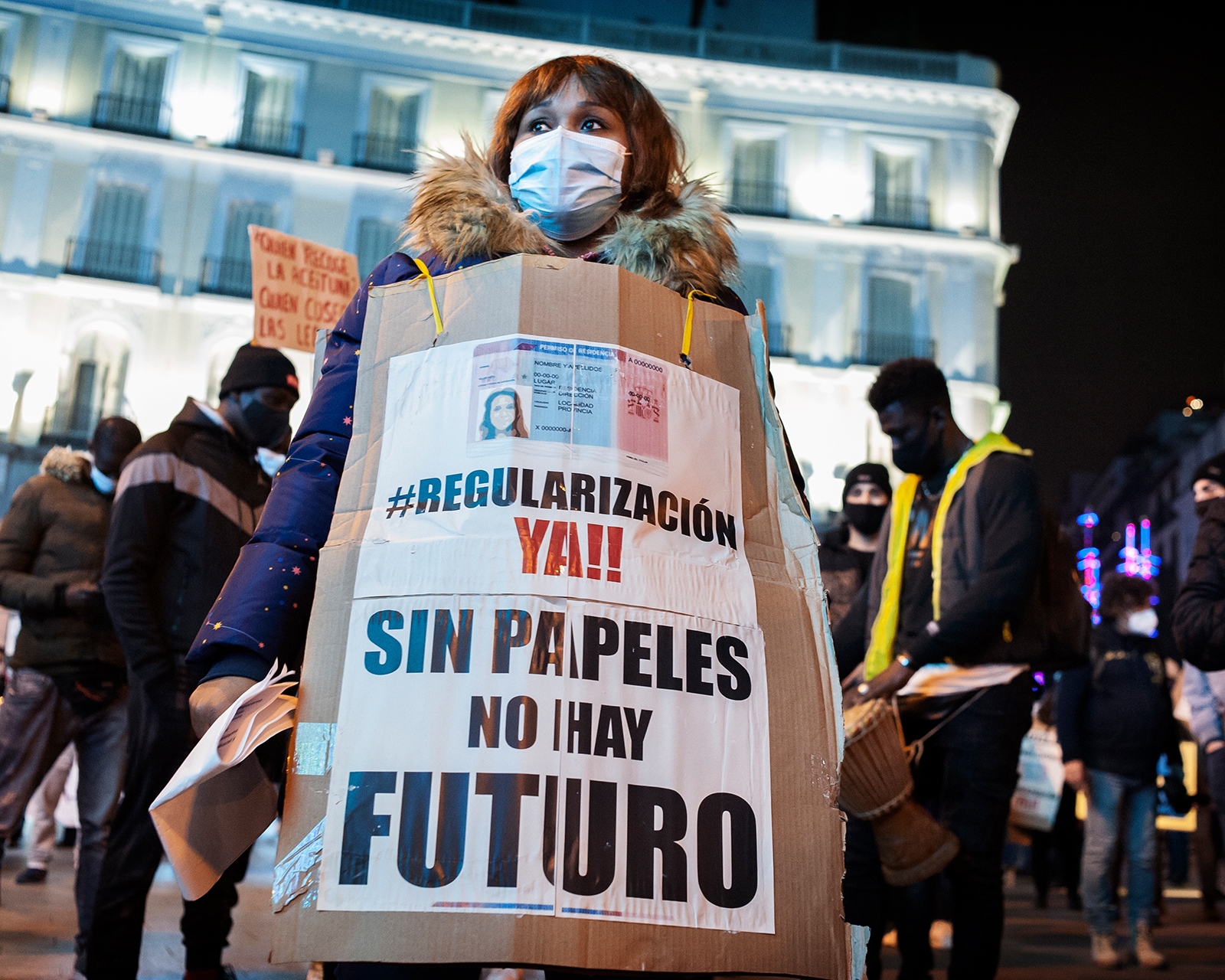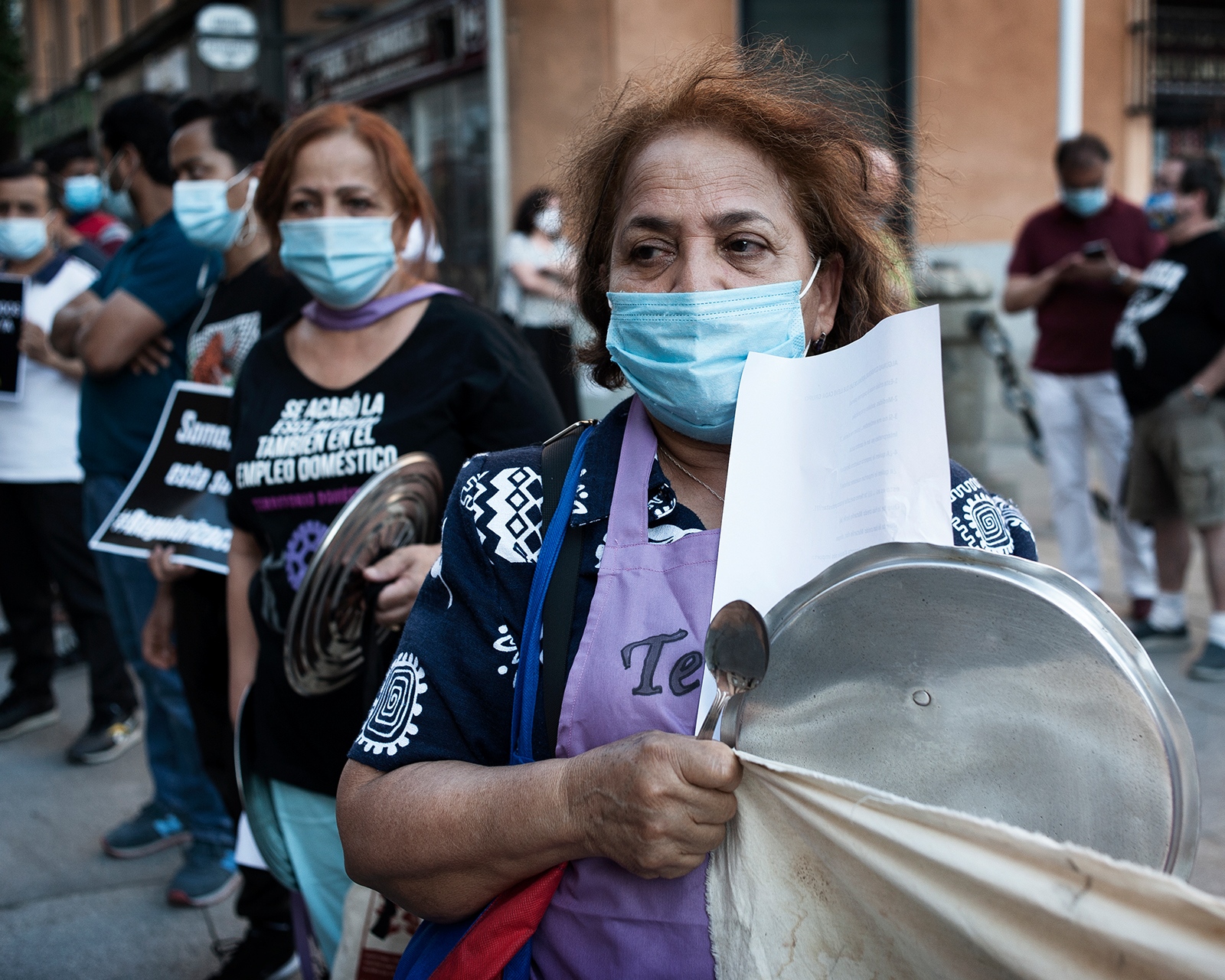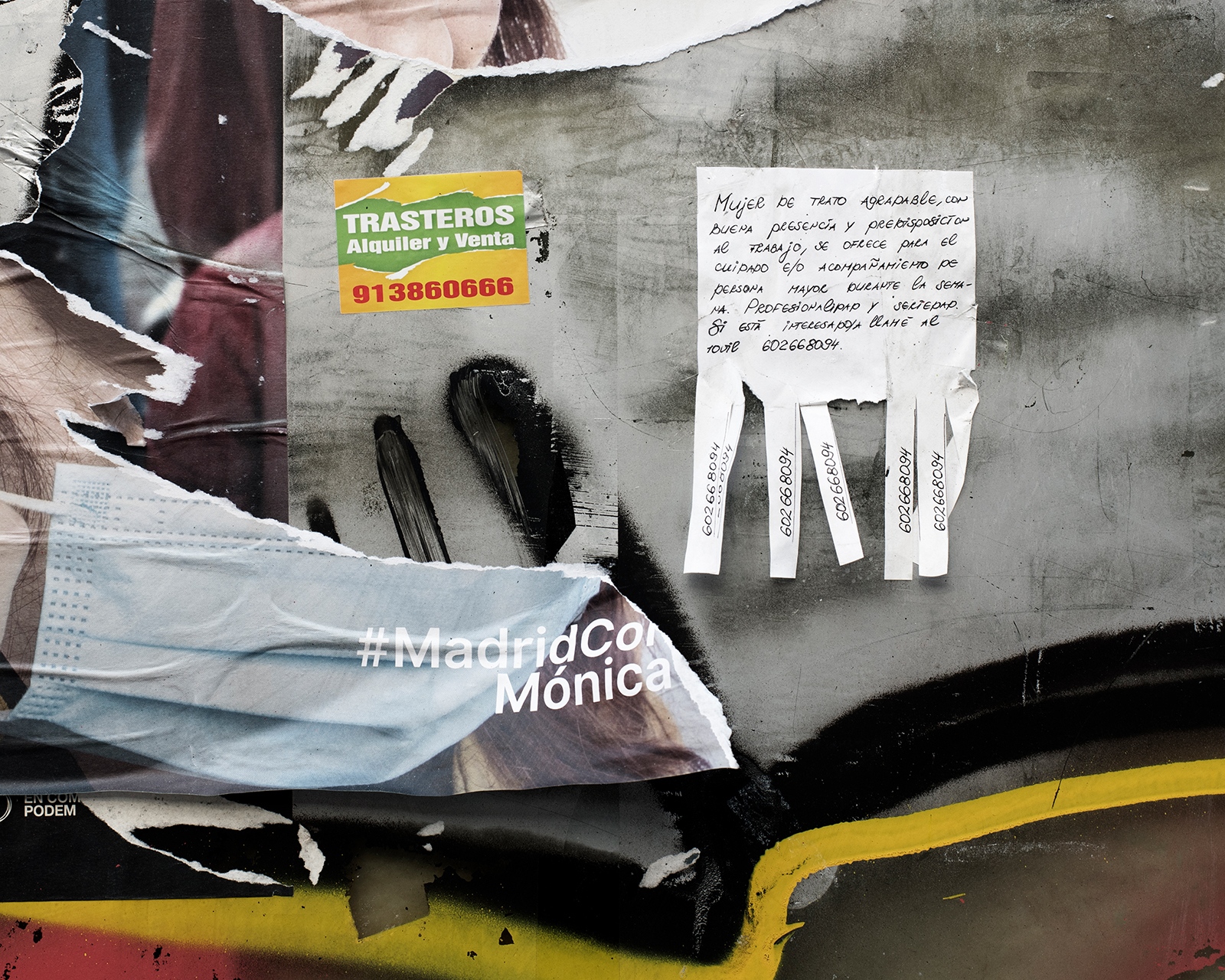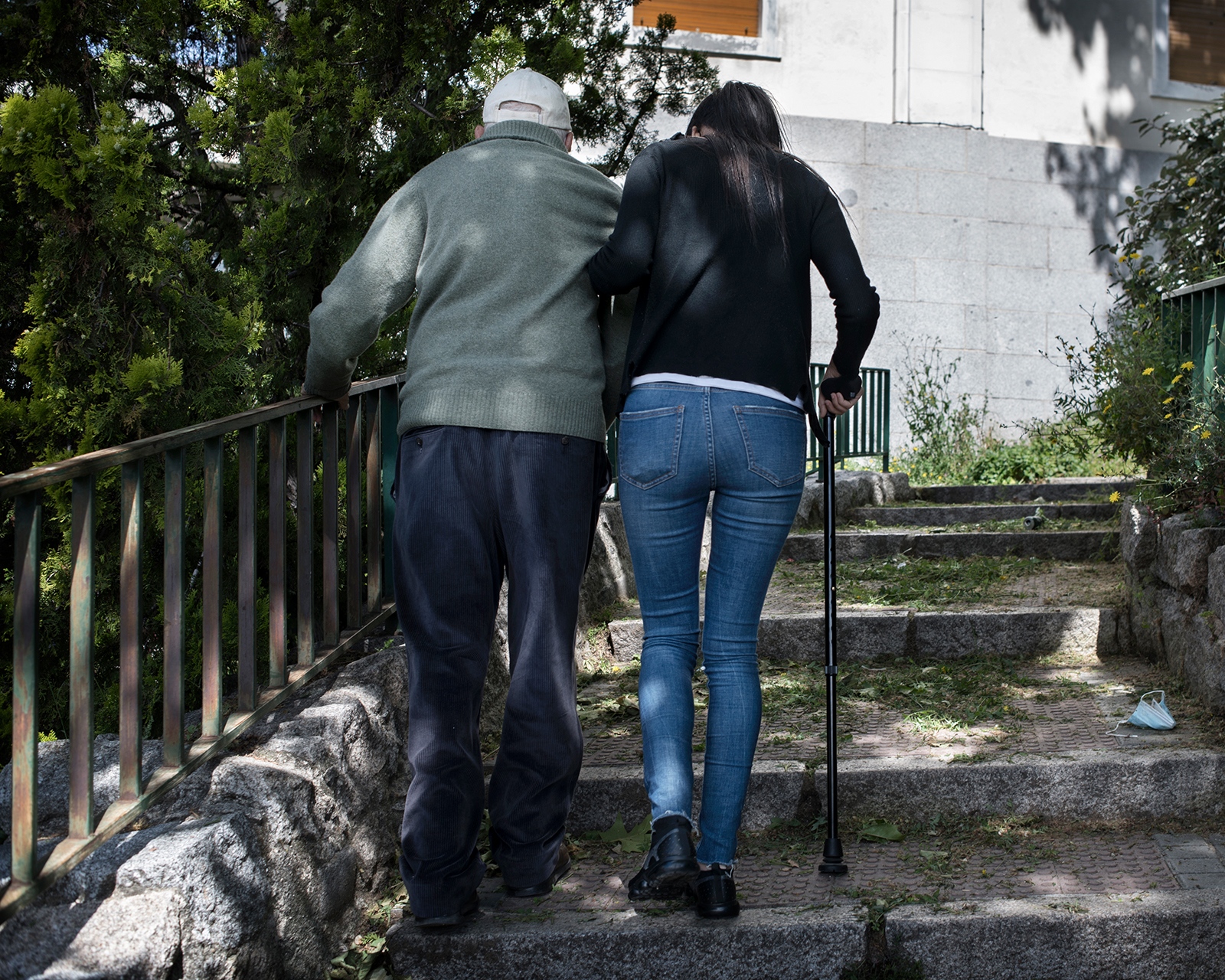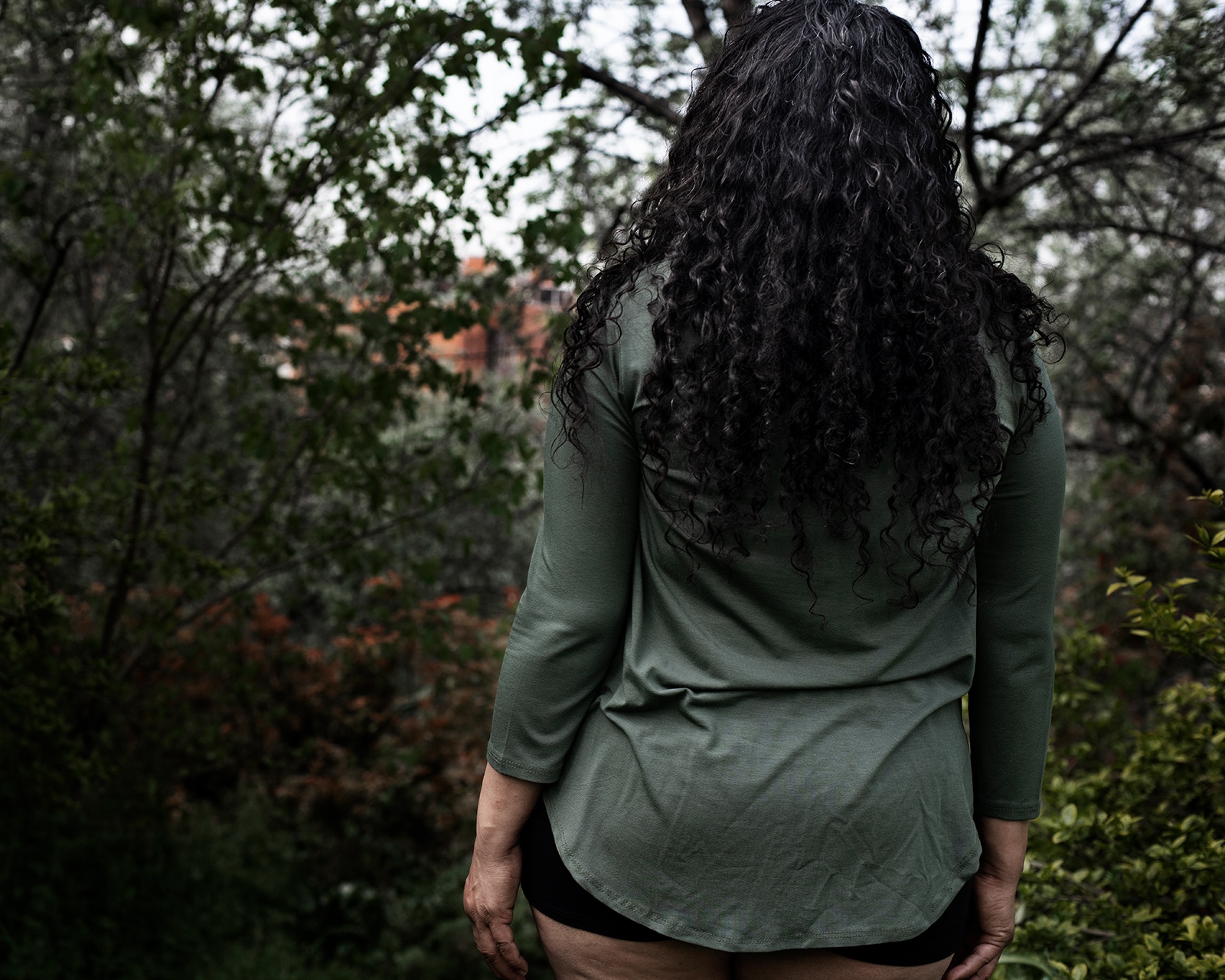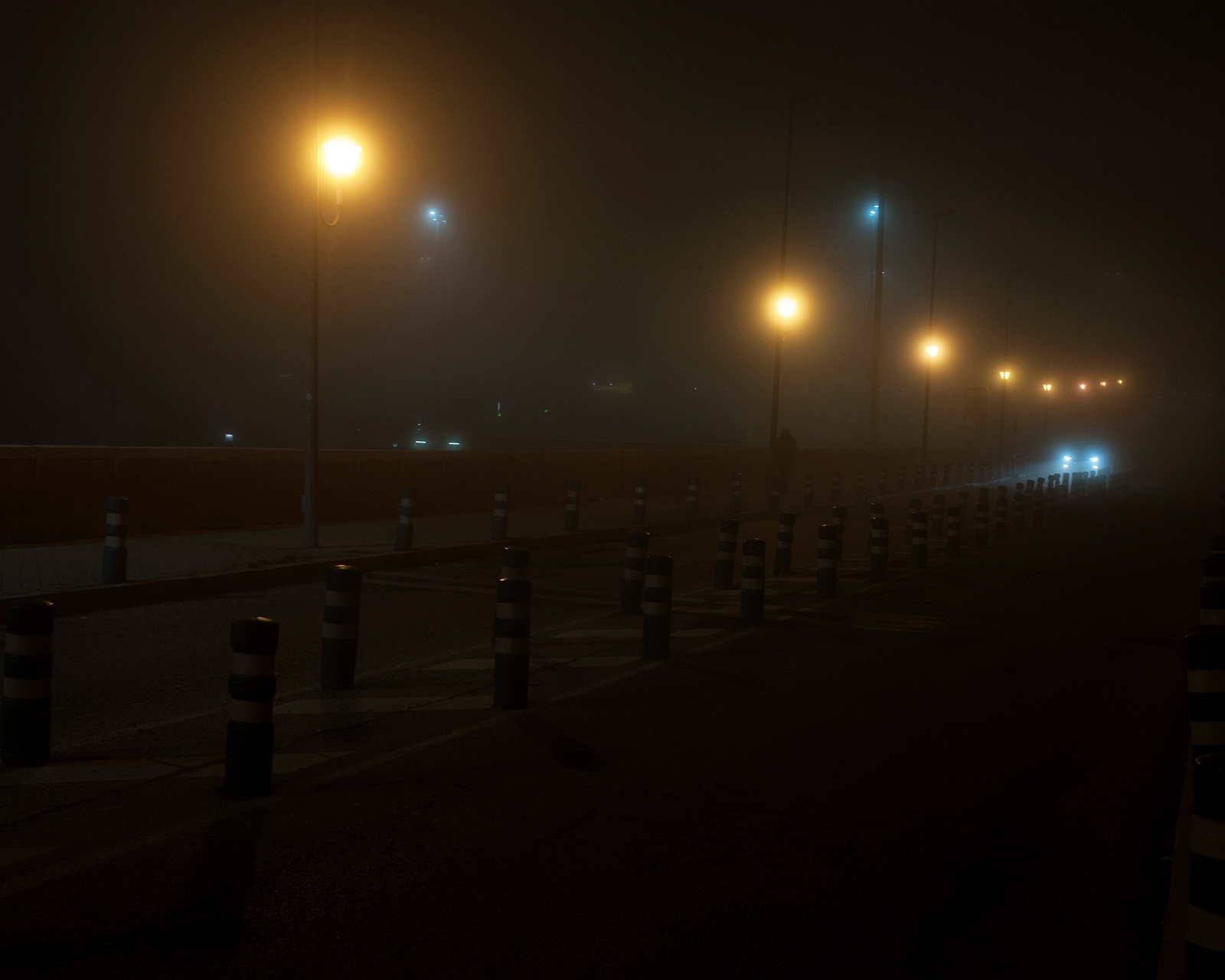House workers and caregivers
During the pandemic, domestic workers became more indispensable than ever. It was them who ensured the proper functioning of many families and took care of elders and children, often exposing themselves to the daily risk of contagion. Yet, these workers are often invisible, relegated to private spaces where the work they carry out is not always perceived at its fair value.
In their own words: “without us the world won't move”. Still, recognition for their work is lacking. In Spain, even those who work legally in this sector do not enjoy unemployment benefits, can be fired at any time and many suffer abusive schedules without holiday rights. Workers without legal papers risk even more severe exploitation.
This pandemic focused our gaze on the importance of these caregivers, giving them a central role in the debate about how we should best organize our society in the future. What better time to make them visible with all the dignity they deserve?
"Who takes care of the caregiver?" is a motto they use in their fight for recognition and the objective of my work is to offer them a space to voice their testimonies and bring us closer to their reality and experiences. I aim at promoting reflection on the importance they have in our daily lives and on the changes that are necessary in this sector.
"Who takes care of the caregiver?" is a motto they use in their fight for recognition and the objective of my work is to offer them a space to voice their testimonies and bring us closer to their reality and experiences. I aim at promoting reflection on the importance they have in our daily lives and on the changes that are necessary in this sector.
TESTIMONIES AND PODCASTS
“Even though I have no legal papers, I speak out in public without fear because, if we stay silent, nobody will fight for our rights.
And we have them like any other human being.”
Antonia
Antonia (51, El Salvador) has behind her long years of struggle for women's rights and for the improvement of social conditions in El Salvador. After having suffered herself abuse and injustice as a woman in her own family, she wants a better future for her three daughters.
Since she arrived in Spain, Antonia has been working without papers, cleaning houses and caring for elderly people. She even took specialized courses to care for people with Alzheimer's because, as she says, she would understand them better that way.
“These people like that you to talk to them or ask them questions, even if they don't remember anything. There are stages in their lives they do remember. They tell you the same thing over and over, but they feel alive, because they are remembering things. I like to change their clothes, take care of them, keep them clean, put perfume on them. That way, they feel good. I can't treat them like it's just a paid job and that's it. When they ask me to promise I won’t leave them alone, it affects me. I just can't avoid getting attached to them."
“These people like that you to talk to them or ask them questions, even if they don't remember anything. There are stages in their lives they do remember. They tell you the same thing over and over, but they feel alive, because they are remembering things. I like to change their clothes, take care of them, keep them clean, put perfume on them. That way, they feel good. I can't treat them like it's just a paid job and that's it. When they ask me to promise I won’t leave them alone, it affects me. I just can't avoid getting attached to them."
For Antonia, the hardest thing in this job is when the people she cared for and with whom she developed a strong bond die: “They tell me things that they may not tell their own children. I become their partner, friend, and sometimes even psychologist. And of course, when they leave, it affects me as if they were someone from my own family.”
Meanwhile, since coming to Spain, Antonia has not been able to go to El Salvador to see her own daughters. The risk of not being able to return to Spain is too high, so she waits patiently until the last of her daughters finishes her studies. In July, one of her daughters apologized to her for wanting to get married even though Antonia couldn't be present. They set up a video call during the ceremony as the only way for Antonia to be with her daughter.
In Madrid Antonia lives in an apartment with six other adults and a newborn child. Antonia shares a room with another woman who cares for an elderly couple during the week and returns home only on weekends. They get along well, although their room only fits one bed.
In Madrid Antonia lives in an apartment with six other adults and a newborn child. Antonia shares a room with another woman who cares for an elderly couple during the week and returns home only on weekends. They get along well, although their room only fits one bed.
During the first wave of the pandemic, Antonia's working hours decreased considerably and, as she has no legal papers, she was not entitled to any institutional financial support. She was able to manage thanks to her savings and her home-made Salvadoran food business. She cooks at home and sells to a network of customers developed over the years, using word of mouth as advertising. She also received around € 100 from the organization Centroamérica Feministas, one of many local networks and organizations that developed volunteered help for needy people during the pandemic. She reciprocates by helping others whenever and however she can, staying involved in the struggles for the rights of women and those who are excluded or at risk of poverty.
Currently, Antonia is in the process of fixing her administrative situation, as she obtained a signed contract. However, even with papers and registered at the Social Security System, she will not have the same rights as other employees in Spain because of the Spanish Labor Law regulating the situation of domestic workers.
PODCAST:
Update Required
To play the media you will need to either update your browser to a recent version or update your Flash plugin.
First episode - ANTONIA
PHOTOGALLERY
“WE DO NOT ASK FOR CHARITY, WE ASK FOR SOCIAL JUSTICE!"
Interview with Edith Espinola,
spokesperson for the SEDOAC Association (Active Domestic Service) in Madrid.
spokesperson for the SEDOAC Association (Active Domestic Service) in Madrid.
Association website: https://sedoac.org/
“The situation of domestic workers in Spain, in itself is an inequality, because they do not have the same rights as any other employee registered with Social Security. We are in a Special Regime and this means that we do not have the right to unemployment, there is no law for the prevention of occupational risks, there is a lower pay when there is compensation when you are fired and there is the figure of so call "withdrawal" that says that if an employer has mistrust in you, he can fire you in a moment without giving any explanation. In addition, there is a lack of control of working hours, because as it is a job within a private home, the inspections are not effective either. And all this refers to women who work with a contract and their papers in order. But, the great part of domestic workers work in the informal economy: or because they are in an irregular administrative situation or because for some reason their employer does not want to make a contract for them. They are even more exposed to abuse. And it is an important problem taking into account that about 70% of the women who work in domestic employment are migrant women ..... READ MORE
"INTERNAL REGIME - MODERN SLAVERY"
"The truth is, when I was still in my country, I said to myself - God, first world! Spain, the best you can see in Europe! - and now… A lot of bad things happened to me here and it was hard for me to see that I have rights like anyone else. Without us the families cannot go to work. They would not be able to stay calm if they had not an employee who take care of their children or their parents, and who leave everything well arranged and organized for them. Why then is it so difficult for them to value our work?"
Delia
“I think that first employers should have a bit of empathy with the people who work for them ... and they should not exploit us in the way they do. People see a domestic worker as a slave, a person who is there to serve, and I think it will take a long time for the mentality to change, although there are many people who value our work and understand ... I hope one day they will change a little, right? Because it cannot continue like this, we are in the 21st century."
Delia
Delia (54 years old, Paraguay) came to Spain 15 years ago. With a degree in administration, in Paraguay she worked first as a manager, then she had her own business. The economic crisis that hit her country forced her to consider emigration. In Spain, she had worked for 11 years as a domestic maid - a regime that many define as modern slavery.
Delia (54 years old, Paraguay) came to Spain 15 years ago. With a degree in administration, in Paraguay she worked first as a manager, then she had her own business. The economic crisis that hit her country forced her to consider emigration. She wanted to ensure an education for her two children. When she left, her son was 10 and her daughter 16 years old. She saw them again 10 years later, as adults and parents.
In Spain, Delia began working as a housekeeper without papers or a contract, since for Latin American migrant women it is practically the only option. The Immigration Law requires them to remain in the informal economy for three years, before completing this period they cannot even begin the process to regulate their situation.
A year and a half after her arrival, Delia was arrested in a police raid, which on December 23 searched the supermarkets for housemaids doing Christmas shopping for their bosses. They took her to the CIE with the bags in her hands.
She manage to appeal the expulsion order but the trials took 5 years, meanwhile, she continued working without papers, locked up in her employer's house, going out once a week for a walk. It took her 5 more years to get someone willing to make a contract for her and, consequently, make it easier to regulate her legal situation. In general, employers preferred to have her without papers, in order not to pay social security taxes and avoid, as they said, unnecessary hassles with the Treasury.
PODCASTS:
Update Required
To play the media you will need to either update your browser to a recent version or update your Flash plugin.
Second episode - DELIA
JESSICA
(32 years old, El Salvador)
(32 years old, El Salvador)
“I came to Spain in February, just before the pandemic. I started directly as an intern, looking after three children in a three-floor chalet. I did everything: cooking, ironing, cleaning, from Monday to Saturday for a salary of € 870. After two weeks of being with them, the state of alarm in Spain was decreed because of the pandemic and since than I could not leave the house of this family for even one day. It was a very problematic family, they argued a lot and the stress of that and not being allowed to go out, not seeing anyone I knew influenced me and I got sick. I started bleeding from the intestine, losing more and more blood until I had to go to the hospital. There they told me I had anemia and they had to give me a liter of iron. I tried to tell my boss that I needed a week to rest, in principle she accepted it but when I was going to come back she told me that she had to fire me because she herself was fired from her job. Which was a lie because two days later we found out that she already had another girl.
I spent several months looking for a job and finally found another as an intern also. It was 24/7, I only rested one day and the salary was € 400. I accepted it because I needed it. I said to myself: at least you have a place to stay and you have food.
I was looking after an elderly lady, 84 years old. At one point she caught Covid and passed it on to me. She was in the hospital for a month and I had to stay on quarantine at her house, taking care of the house in the meantime. When she returned home, she was no longer the same person. She was much weaker, with an oxygen cylinder connected, she could not clean herself, lift, or walk alone. She is a very obese person and I did not have enough strength to lift and clean her. For me it was much more work, but the family did not want to increase my salary. When I started bleeding from the intestine again, I told myself that I could not continue like this, that I had to change because it was affecting my health after all.
The lady’s daughter (the one who hired me) got really angry with me. She told me that they behaved very well with me, that they fed me and gave me a place to stay, and things like that. Finally when she saw that I will not change my idea, she came to tell me that if I made the decision to leave and report her for what she paid me, the one who was going to lose was going to be me because I don't have papers. And when I left, the old lady also accused me of theft. I told her - check my bags if you want - and she replied - it's not necessary, but enjoy what you have taken!
I left this job and if it hadn't been for the people who helped me, letting me stay at their house, I would be on the street, alone and without money because they still owed me a salary.
Jessica, (32 years old, El Salvador)
Graduate in Tourism Business Administration
Graduate in Tourism Business Administration
THE LONG STRUGGLE FOR RIGHTS
“The situation of domestic workers in Spain is very complicated. First, there is a violation of labor rights that is absolute and total based on the fact that the Spanish law leaves them in a situation of inequality or inferior to common labor relations. We start from this base and we also start from the base that the workplace is a private center, a private home and obtaining any evidence of abuses that take place there is very complicated. And there are abuses, a lot of them. "
Interview with Ismael Sánchez Jiménez
Lawyer specialized in labor issues and domestic service, defends domestic workers in complaints and lawsuits against employers and collaborates with associations such as Active Domestic Service SEDOAC (Madrid).
Lawyer specialized in labor issues and domestic service, defends domestic workers in complaints and lawsuits against employers and collaborates with associations such as Active Domestic Service SEDOAC (Madrid).
“The most frequent abuses that I detect, if we talk about abuses in terms of labor rights are: uncontrolled additional hours of work, lack of registration with Social Security System, wrong and lower contributions, non-compliance with the right to vacations and a long list of so on.
Many women work 15-16 hours a day, on holidays and without this being reflected in their pay. The holidays are a horrible subject. Many employers deny them, do not pay them, do not allow women to choose their 15 days (and many do not even know that they can choose them in case of disagreement). In many cases, employers even force the employee to accompany them to their second home on the beach, trying to pass it off as a vacation break. And not! Holidays are a right that requires a form of disconnection because it is part of the development of the personality and the domestic workers who go with their employer to the villa in Santander or Malaga, they can neither disconnect nor rest and obviously they cannot develop their personality. The worst thing is that these women come to my office assuming that this is their vacation period that this is normal.
"In this sector, many do not value the work we do. They think that here comes a machine and in three hours it will do the ironing, cook for the children and leave your house sparkling ... Not only people do not value us, they don't value their own parents either. What concept do you have of giving your mother a decent life and care, if you pay and treat so badly the person you employ to take care of your mother?"
Janina
Janina (42 years old, Peru) came to Spain 17 years ago. In Peru he did a master's degree in administration and financing. She works as a domestic worker and for several years she has belonged to the Active Domestic Service association (SEDOAC) fighting for rights in her sector.
JANINA
(42 years old, Peru)
(42 years old, Peru)
“I came to Spain 17 years ago, with the contract, visa and everything. Only once here I realized that the contract was fictitious and that in reality I had to find a job. Supposedly I was going to work in a supermarket ... At that time this was done a lot in Spain, there were agencies and companies that made fictitious contracts and sold it to you for € 200-300 and with that you could obtain a visa. This was fixed for me by some relatives who were already in Spain, if I knew that it is like that, I would not have come, that is clear.
In Peru I already had my diploma and studies done, I have a degree in administration and finance, but my mother fell ill with cancer and undergoing cancer treatment in my country is very expensive. So I decided to come here, so I could help her. It's hard to make this decision, let's see, nobody leaves their country because they want to, but because they have a goal, a need. But leaving everything behind: your family, your profession and starting everything from scratch in a country you don't know ... it is hard.
I got my first job within 3-4 months of being here. I was already desperate and accepted the intern position. I was 23 years old and I had to take care of Ana, a 42-year-old quadriplegic woman. I had to move her, bathe her, change her diaper, change her position, take her to the shower and everything, she could not move at all, just her head. She used to say: I am the head and you are the hands - and the truth is that we got along very well. I was working for her for 3 years and I left because my husband, who also came, already began to have a more stable situation at work and I wanted to try to homologate my studies and look for something in my profession. As an intern, you can't do anything, you may have free time only on the weekend and what can you do on a weekend?
“WE ARE NOT ROBOTS, WE ARE PEOPLE"
“In the association Path of Care I met Maite (a social worker-h.j), that day was a very beautiful moment for me because the way Maite treated me was very warm. The expression in her eyes, her affection, made me feel again that I was a person and, after these years working and being treated like a machine without a soul, to feel that someone looks at you as a person, as a human being ... and it is wonderful."
Eli
“I thought that since people read so many masterpieces, so much philosophy, and so many ideas others translate into books, I thought that this makes you a better person. So it has also been difficult for me to understand what I can see here. Because almost in all of the houses where we work, the owners have beautiful libraries, with precious literature, and I ask myself: what the hell do they do with what they have read? It doesn't make them better people! And that's shocking.”
Eli
Eli (name changed, 50 years old, Honduras) came to Spain more than three years ago. She has no papers and since she came to Spain she has been working as an intern domestic maid for a very high class and well-connected family, taking care of a family with four children.
In Honduras she worked as an administrative employee in companies related to US military services. This job allowed her to travel a lot: Singapore, Mexico, even in the Middle East, where she spent a year and a half on her last mission. When these contracts ended, and since she has a very high level of English, she got a job as an English teacher in a public school in Honduras.
Eli is a single mother and the education of her daughter, who is now 23 years old, was always of primary concern to her. That is why, more than three years ago, she decided to emigrate to Spain. She had savings to pay for her daughter's university, but on the condition that nothing unforeseen happens, which in normal life is impossible, even more so considering that her daughter needs more attention for being a poor listener.
PODCASTS:
Update Required
To play the media you will need to either update your browser to a recent version or update your Flash plugin.
Third episode - ELI
Project realized with a support of a grant from the European Journalism COVID-19 Support Fund

FURTHER WORK WITH COMMUNITIES
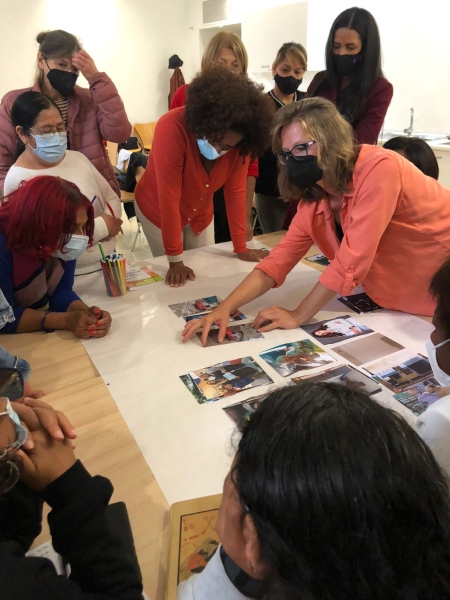
Reina Sofia National Art Center Museum
"Behind each shipment, a story"
Performative presentation of the photographic workshop on remittances
Remittances are periodic shipments of money or products with which precarious migrant workers support their families, contributing to the fragile economies of their places of origin. In June 2021 the need arose to make visible the stories behind those shipments on the other side of the ocean.
A workshop was organized around this idea, coordinated by the photographer Hanna Jarzabek, the results of which are exhibited in this performative presentation. The initiative, between October and December 2021, was aimed at domestic workers who are members of the Territorio Doméstico collective, which is part of the Located Museum network.
Throughout its four sessions, the workshop built different visual stories taking as a starting point, on the one hand, the images that the families of the participants send of what they have been able to acquire with the resources received and, on the other, photographs that they themselves have taken to make visible the effort involved in generating them. These images, which are exhibited during this meeting, introduce the individual history of each participant, while helping to address common themes such as the precariousness of the work carried out by the migrant population, the unequal division of it, care or the role of women within this cross-border logic. The researcher and writer Ana Longoni participates in the meeting.
A workshop was organized around this idea, coordinated by the photographer Hanna Jarzabek, the results of which are exhibited in this performative presentation. The initiative, between October and December 2021, was aimed at domestic workers who are members of the Territorio Doméstico collective, which is part of the Located Museum network.
Throughout its four sessions, the workshop built different visual stories taking as a starting point, on the one hand, the images that the families of the participants send of what they have been able to acquire with the resources received and, on the other, photographs that they themselves have taken to make visible the effort involved in generating them. These images, which are exhibited during this meeting, introduce the individual history of each participant, while helping to address common themes such as the precariousness of the work carried out by the migrant population, the unequal division of it, care or the role of women within this cross-border logic. The researcher and writer Ana Longoni participates in the meeting.
More information: ENTER
